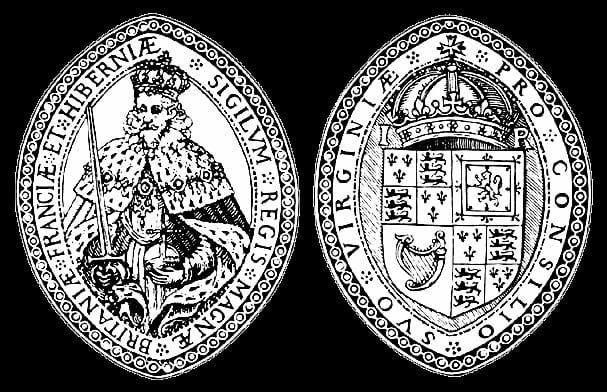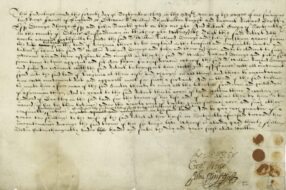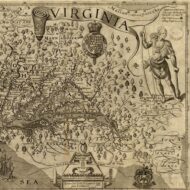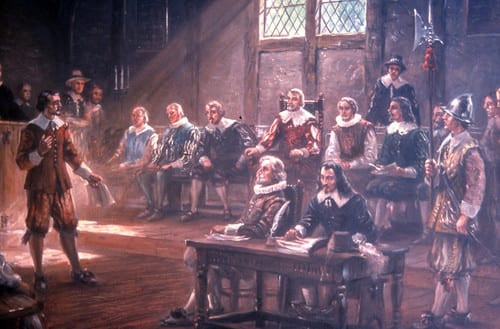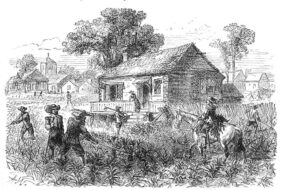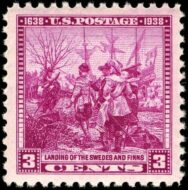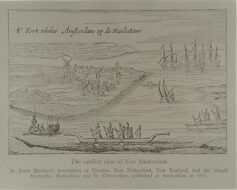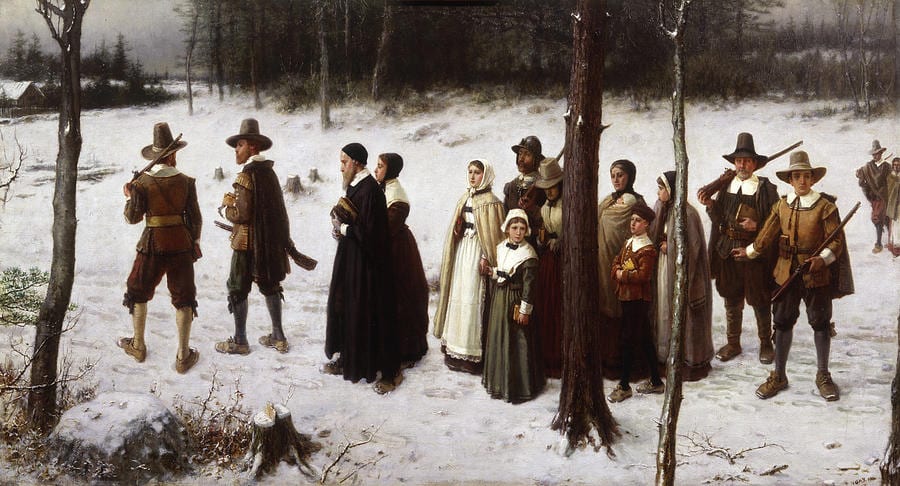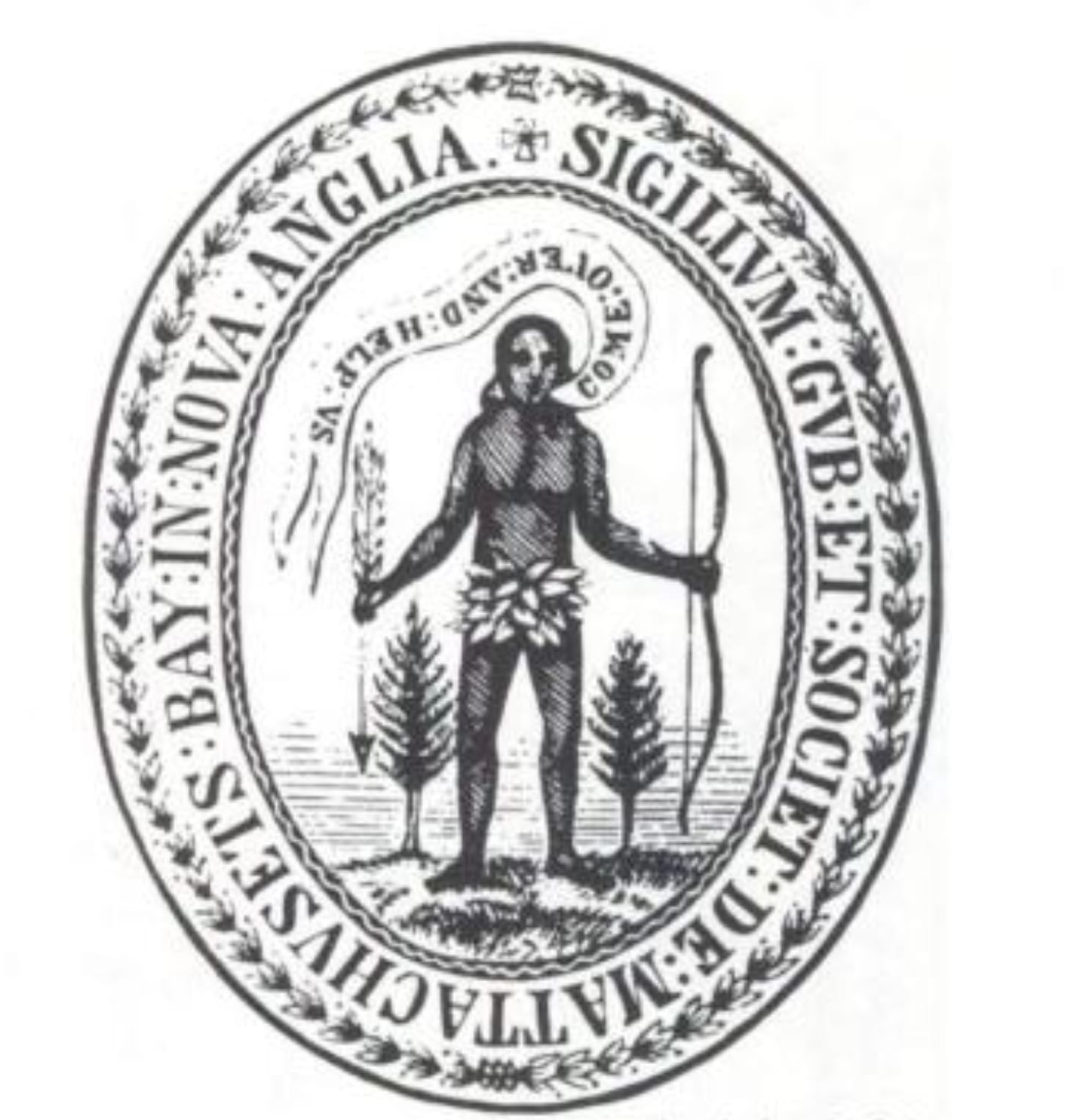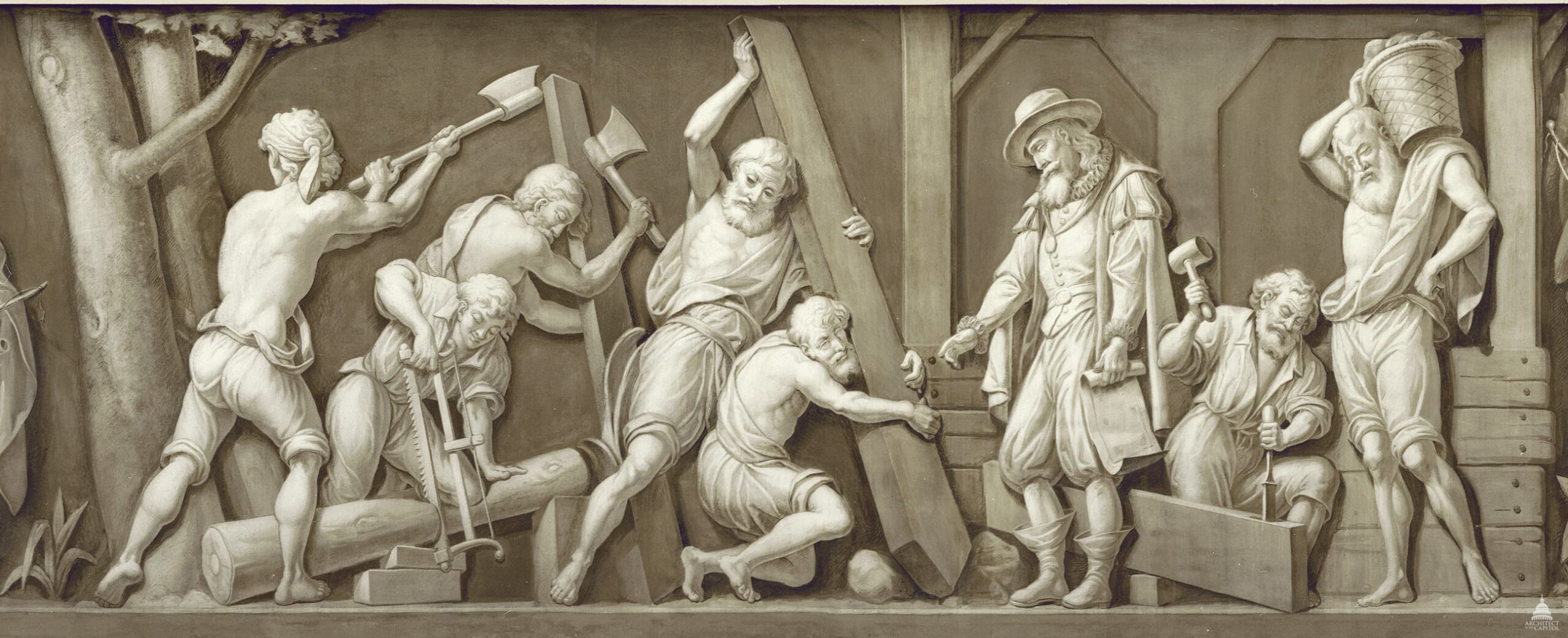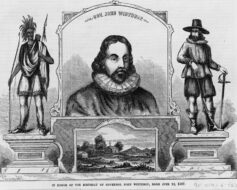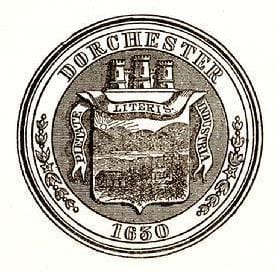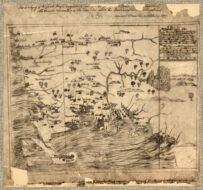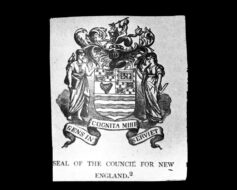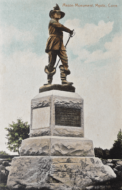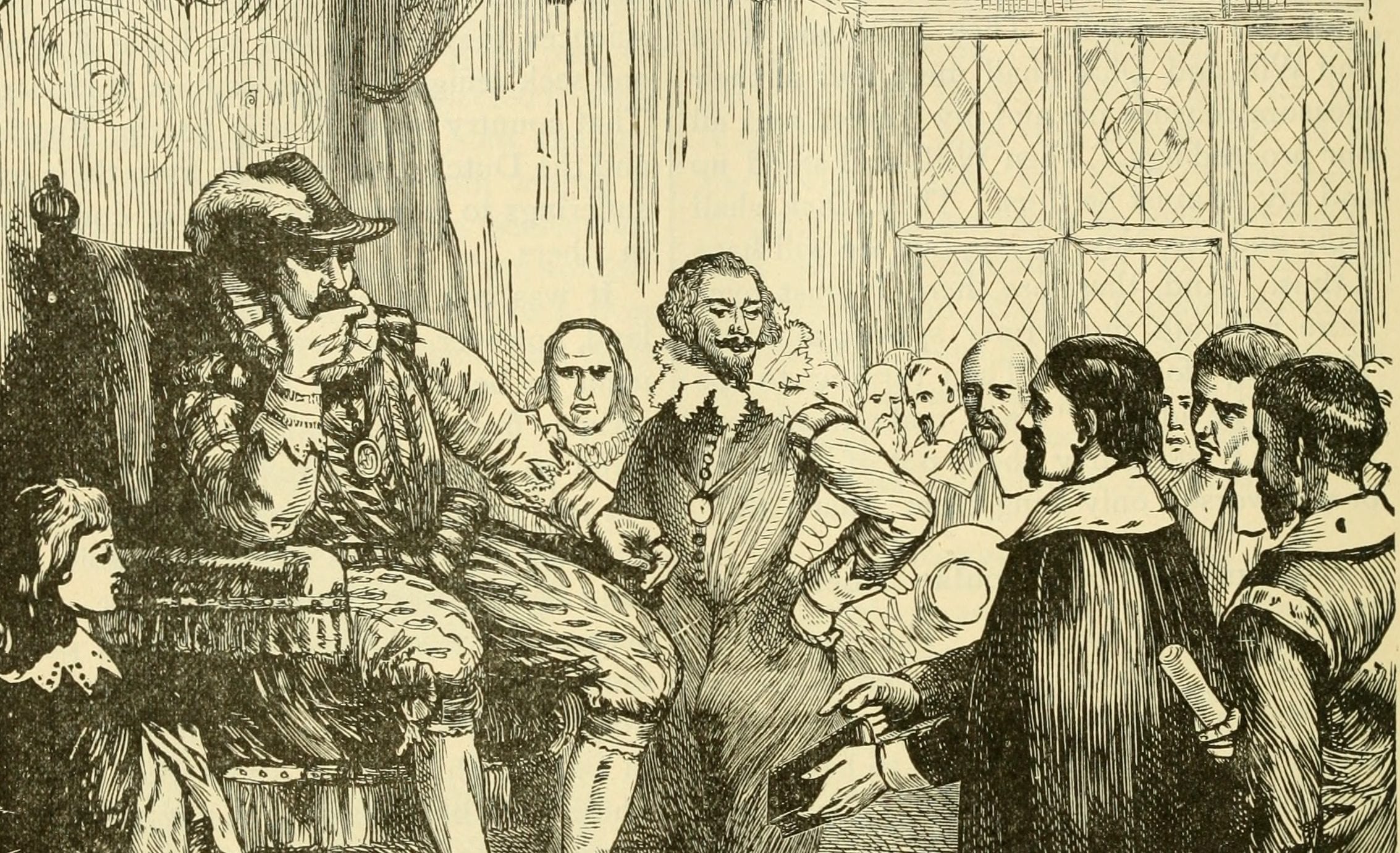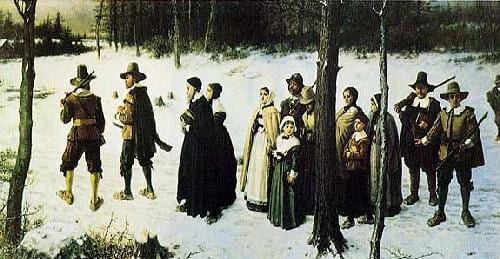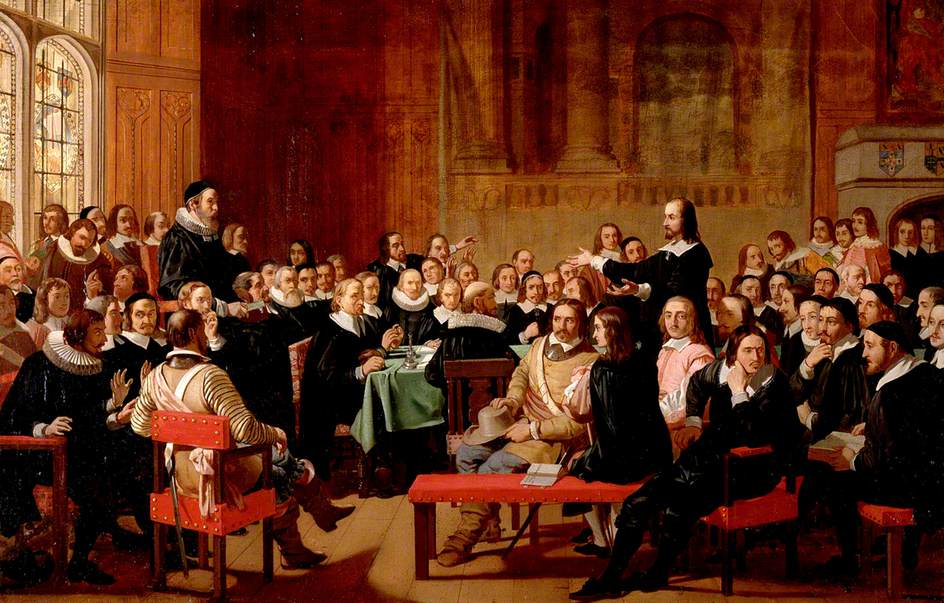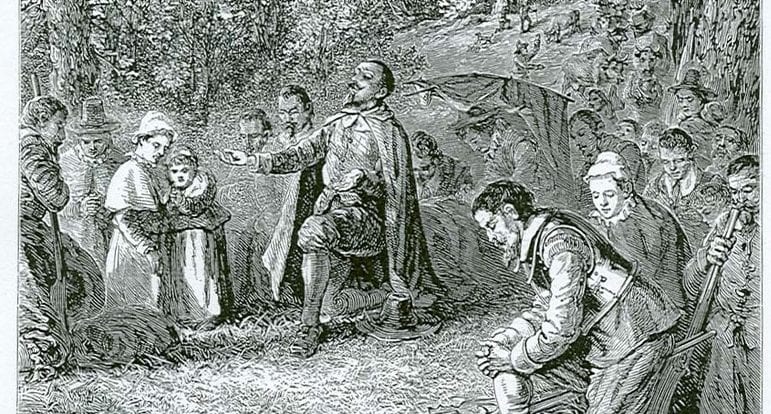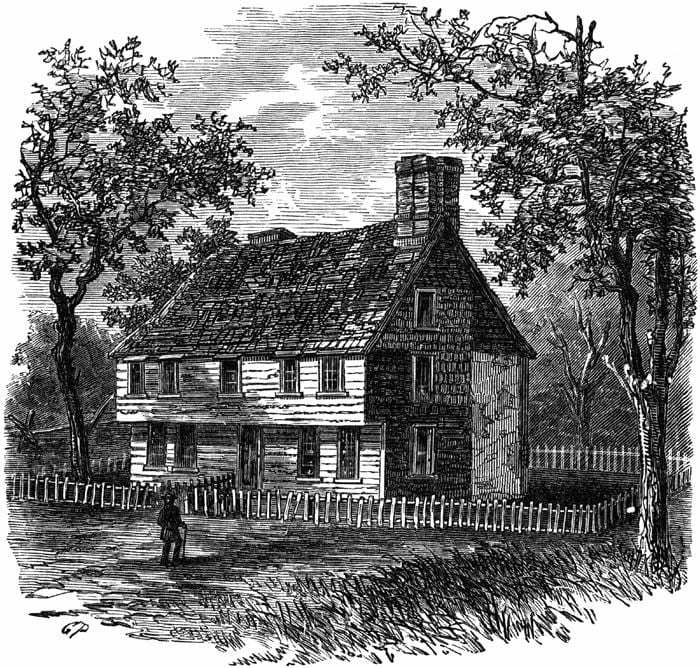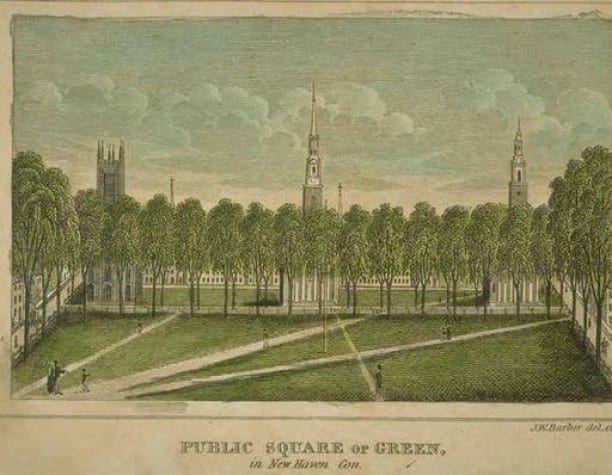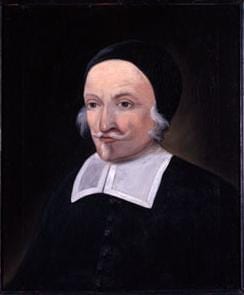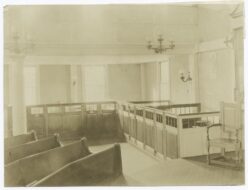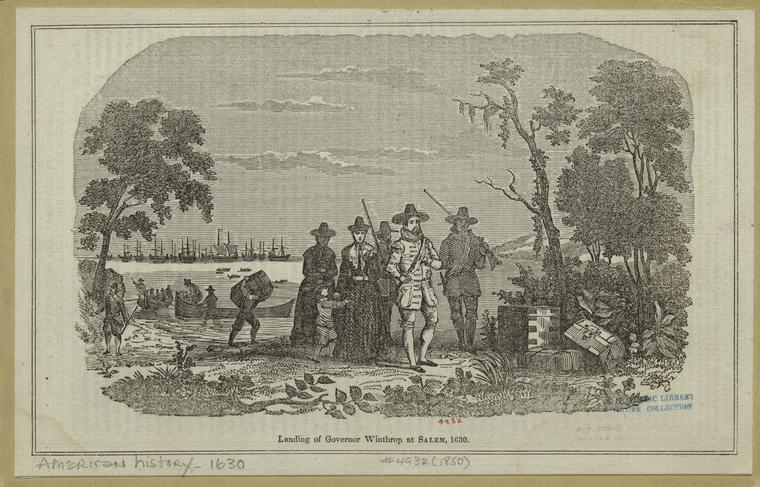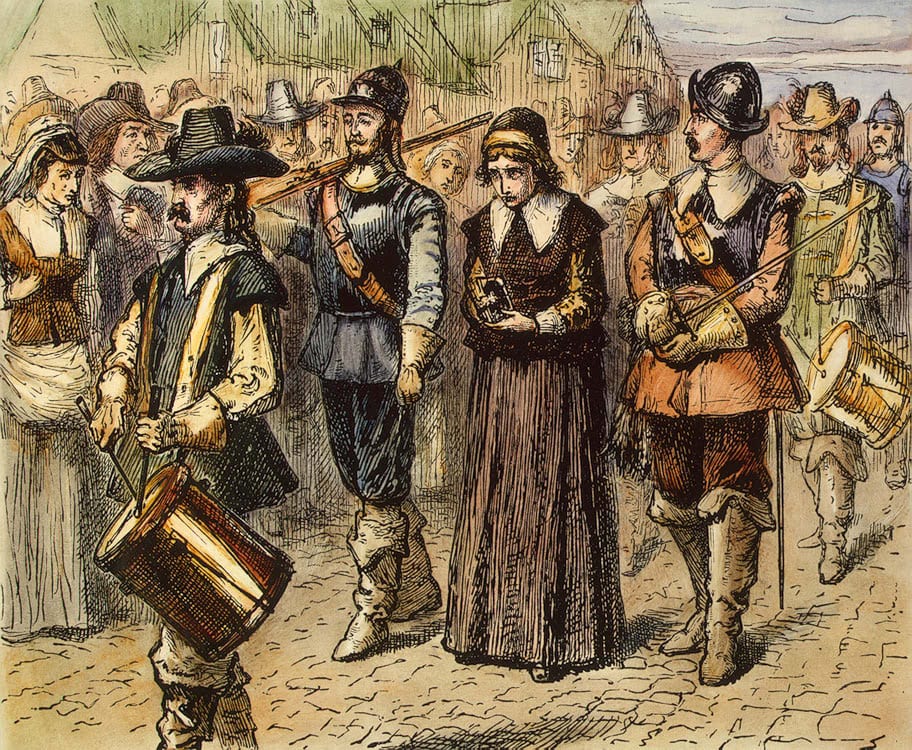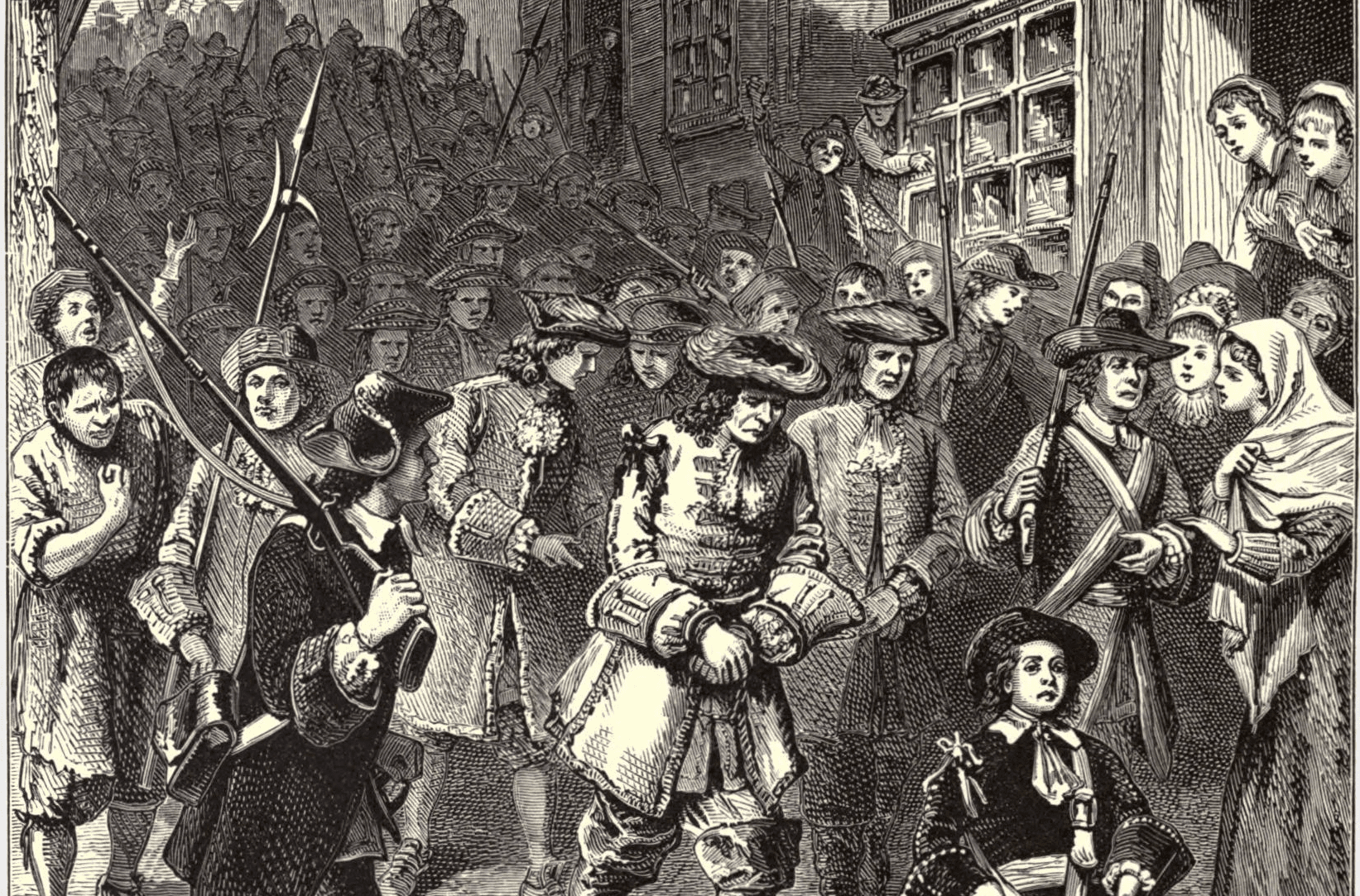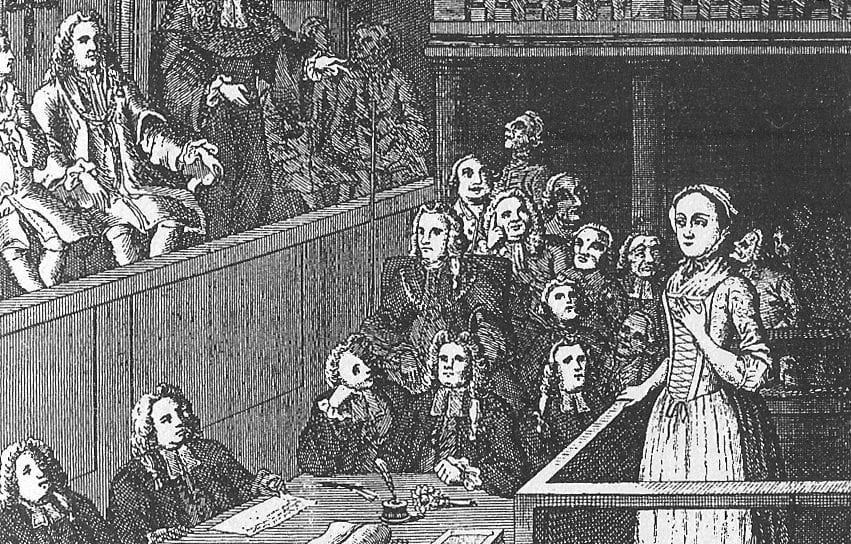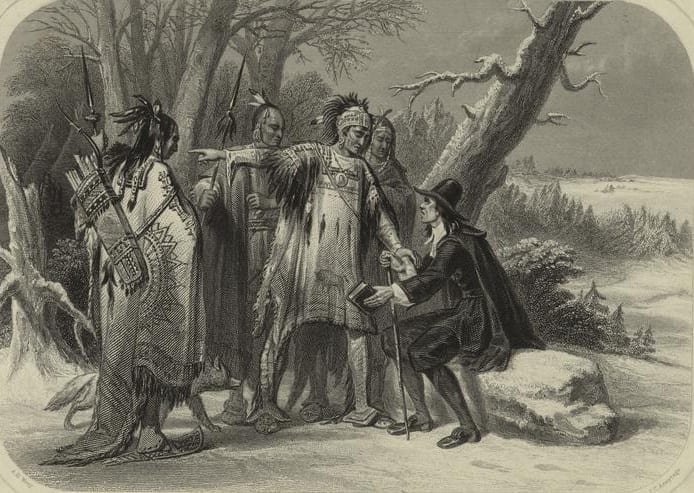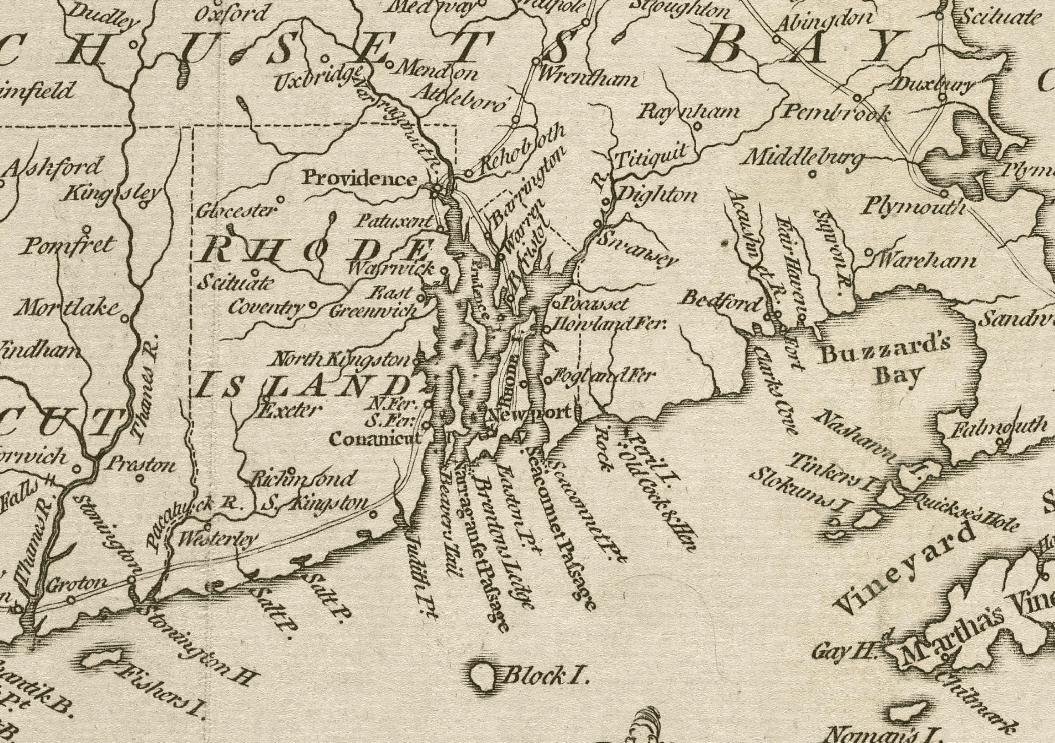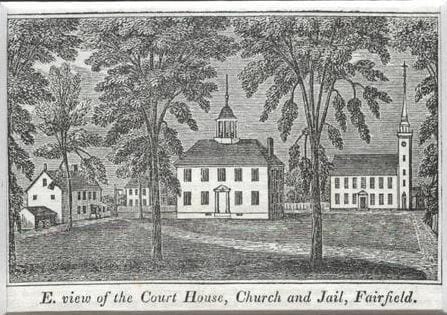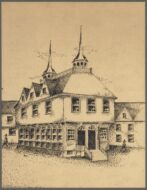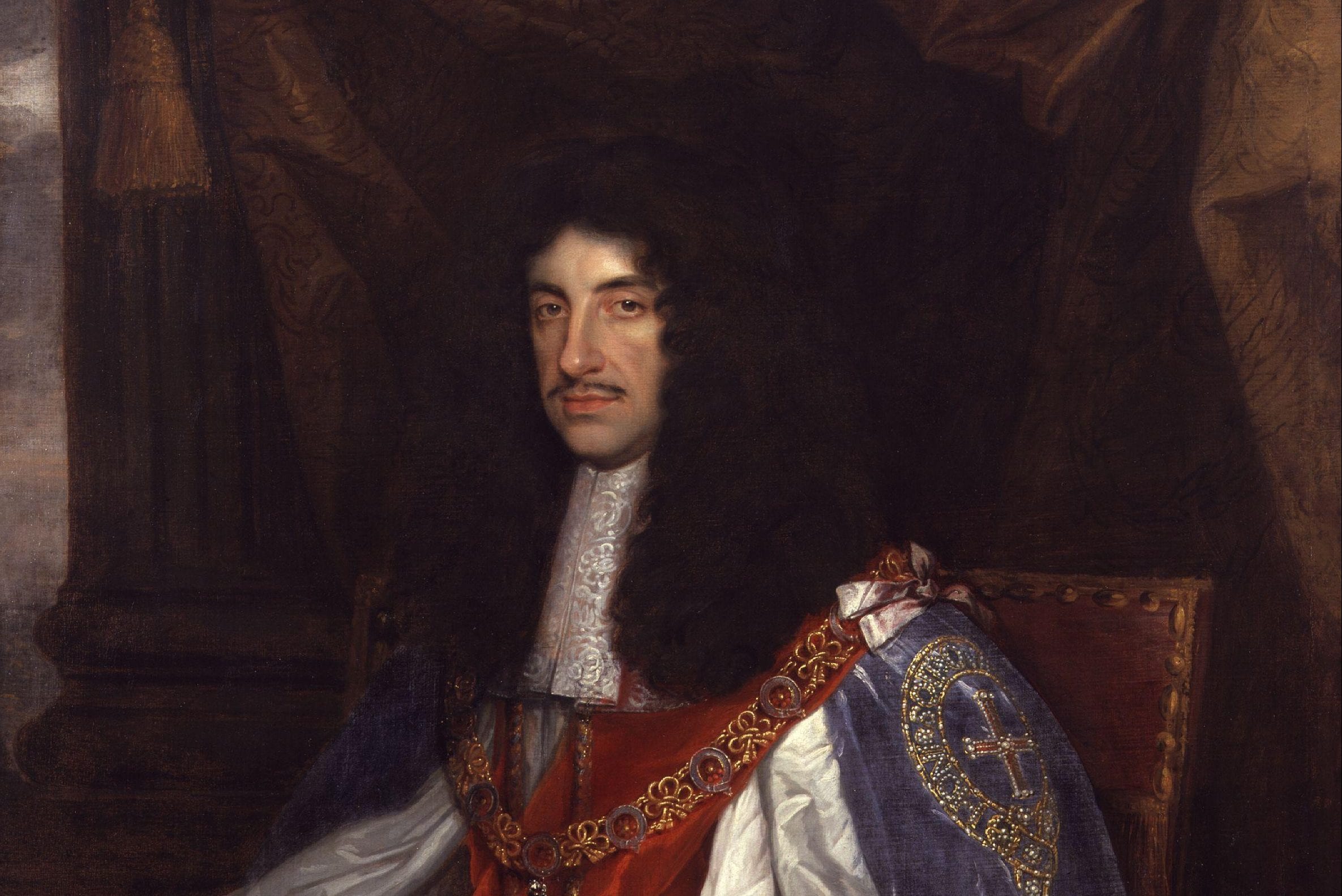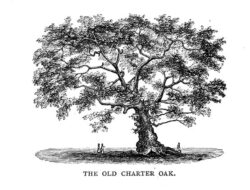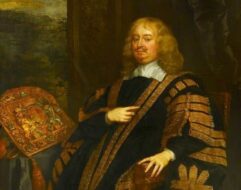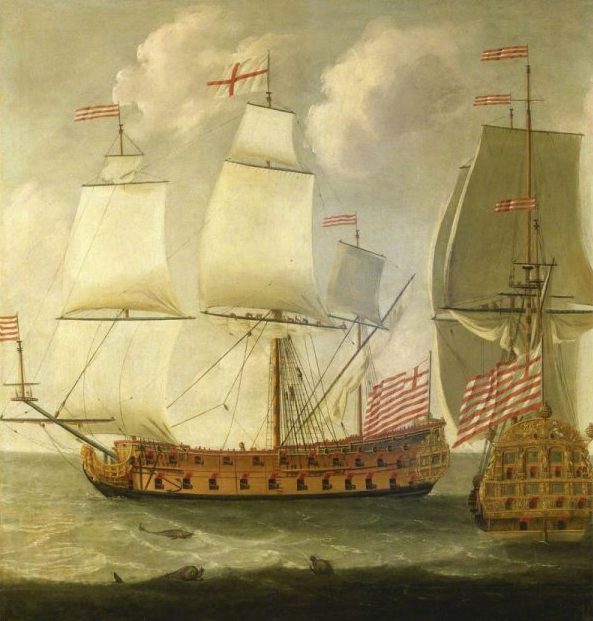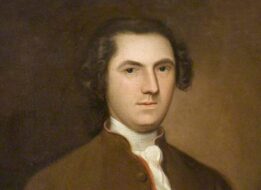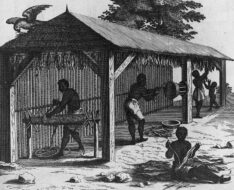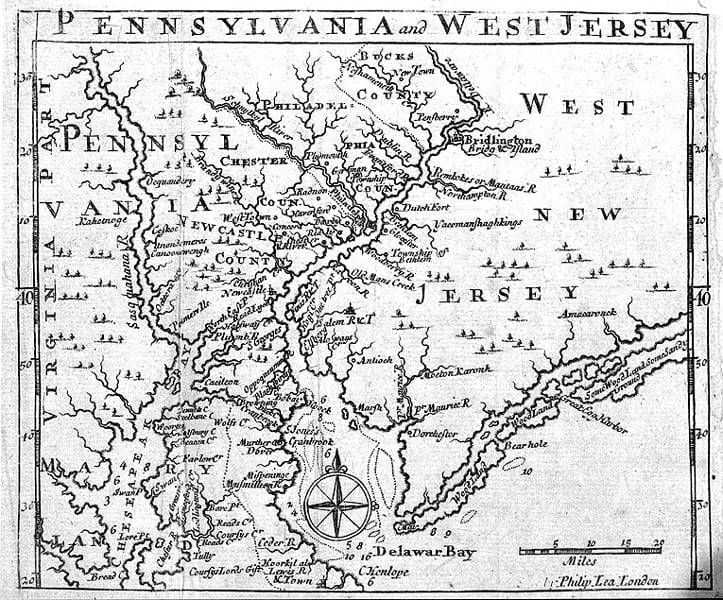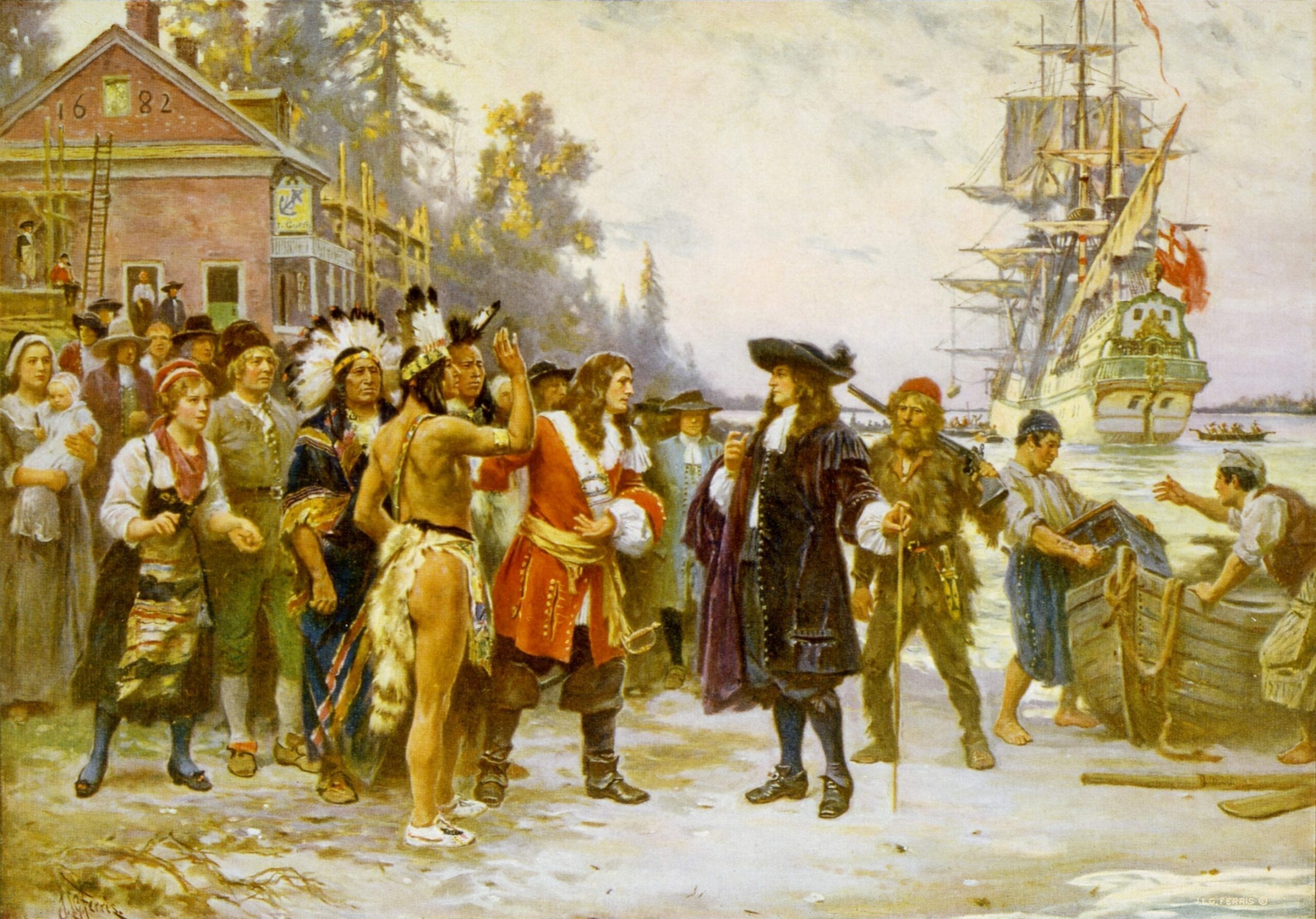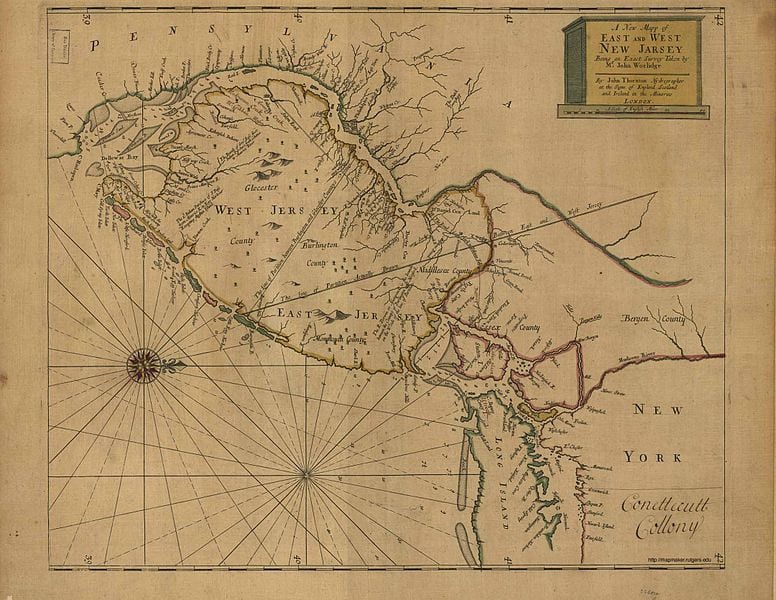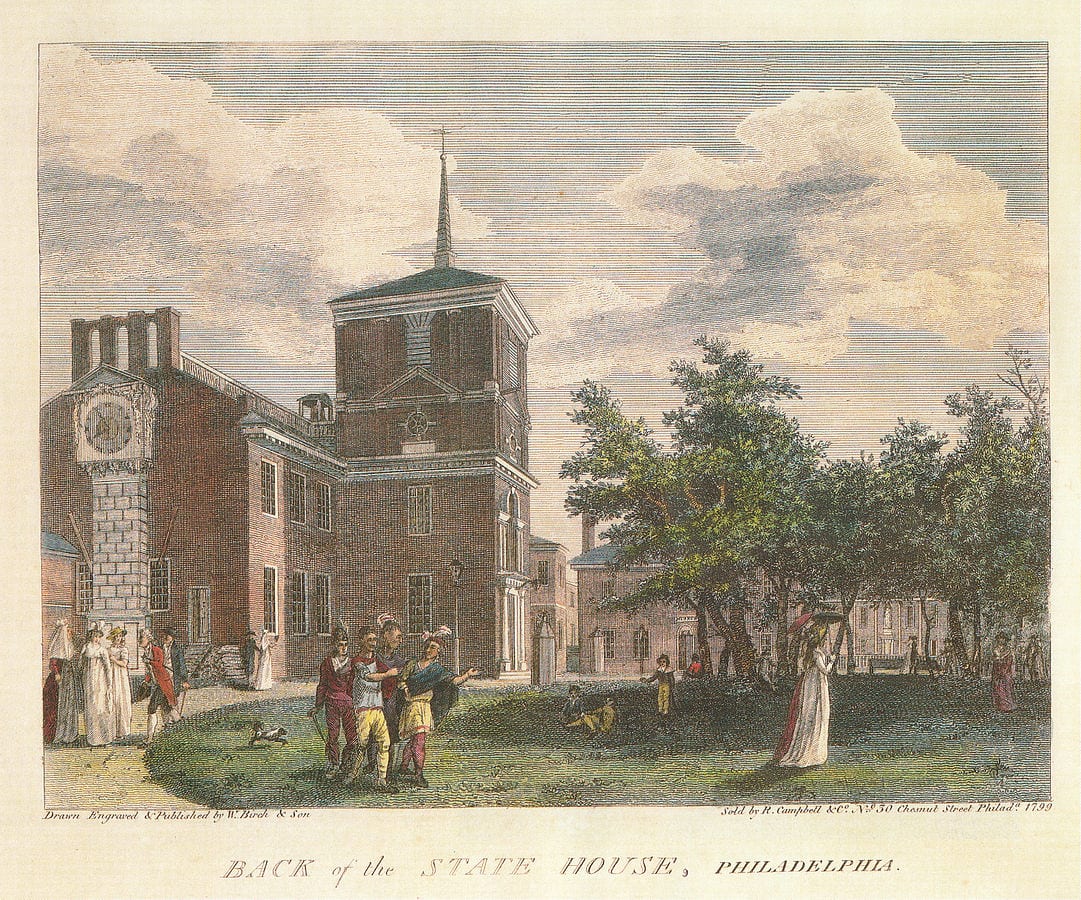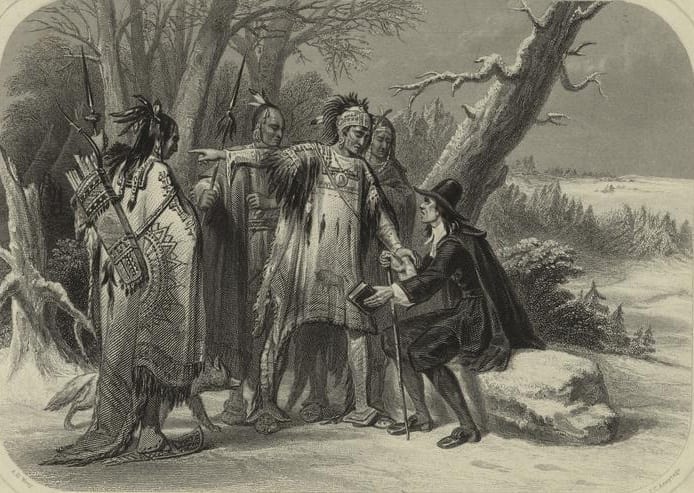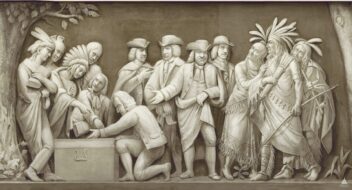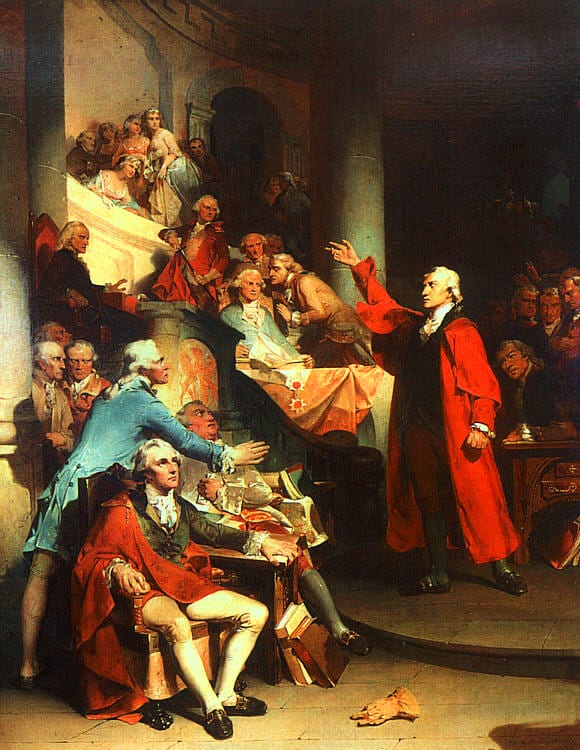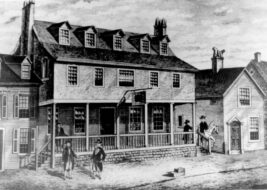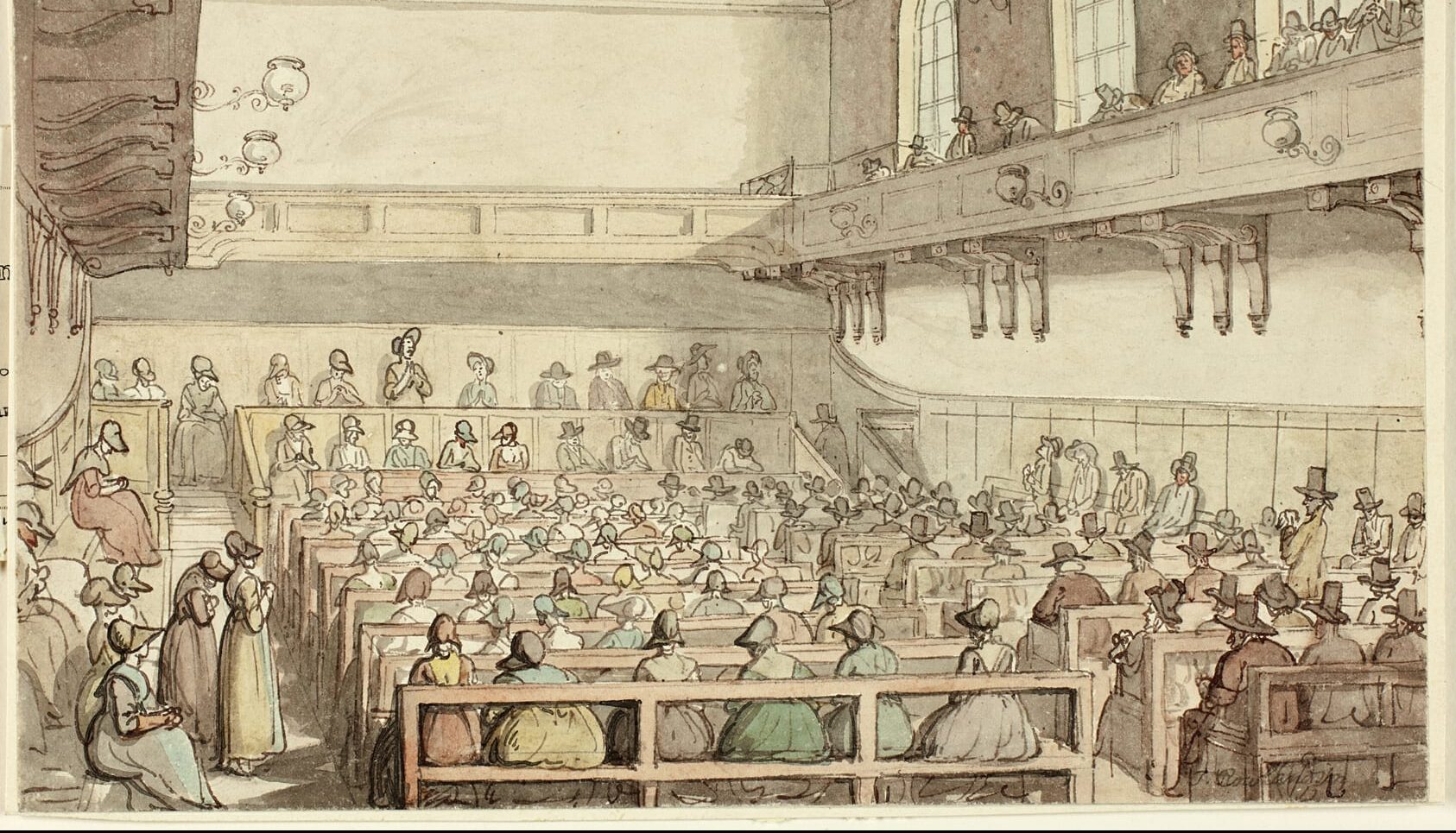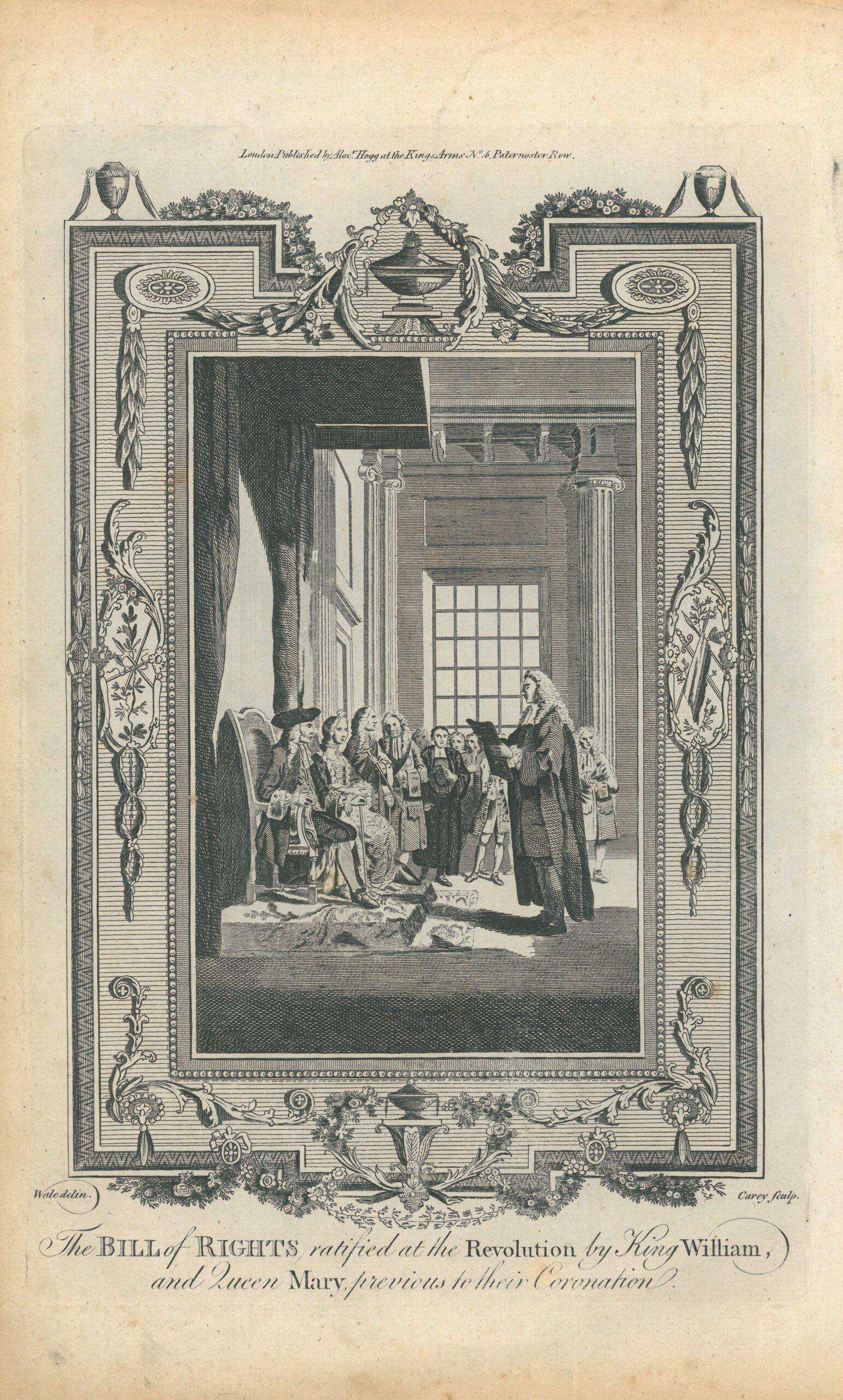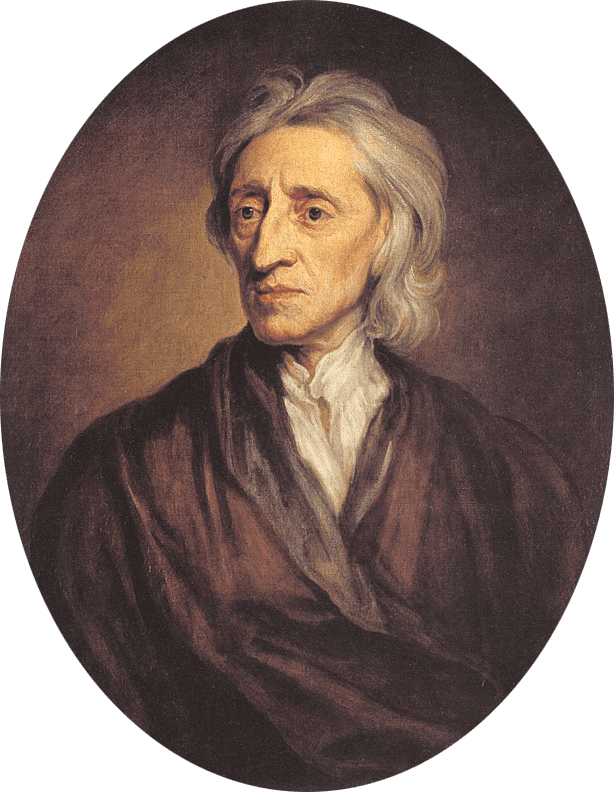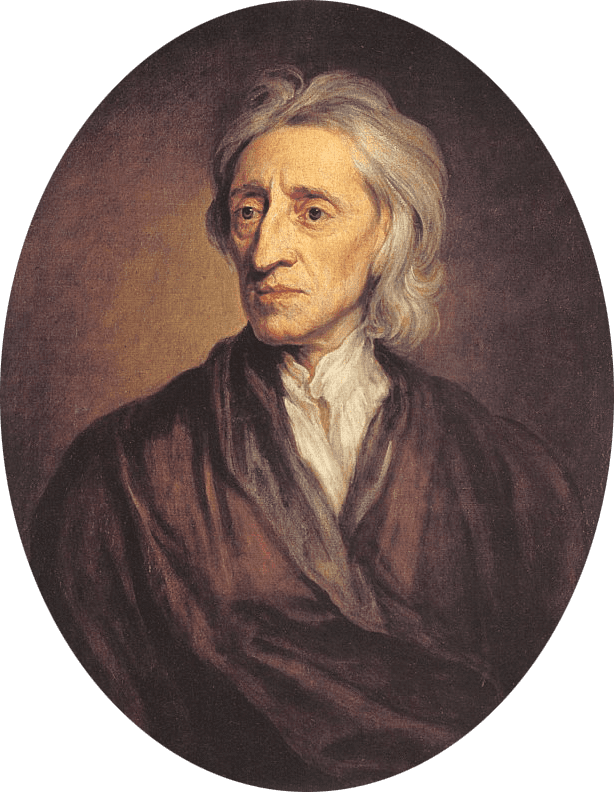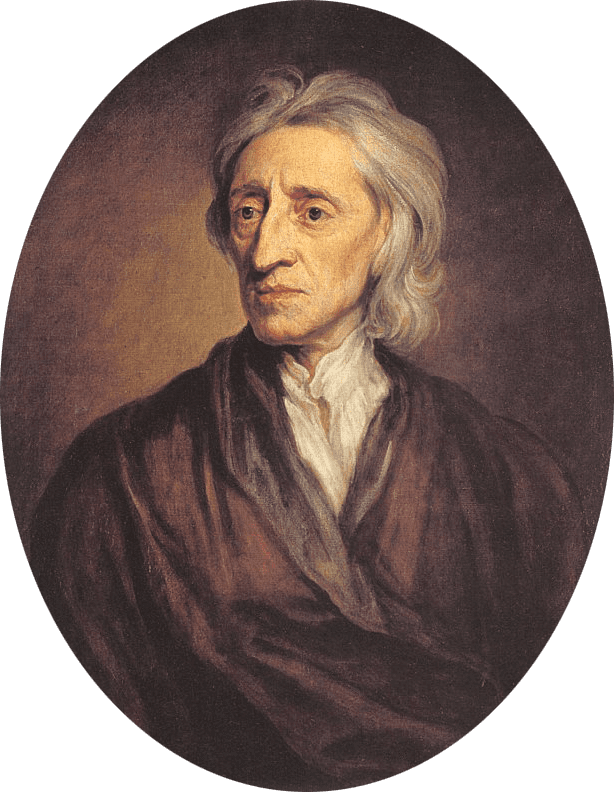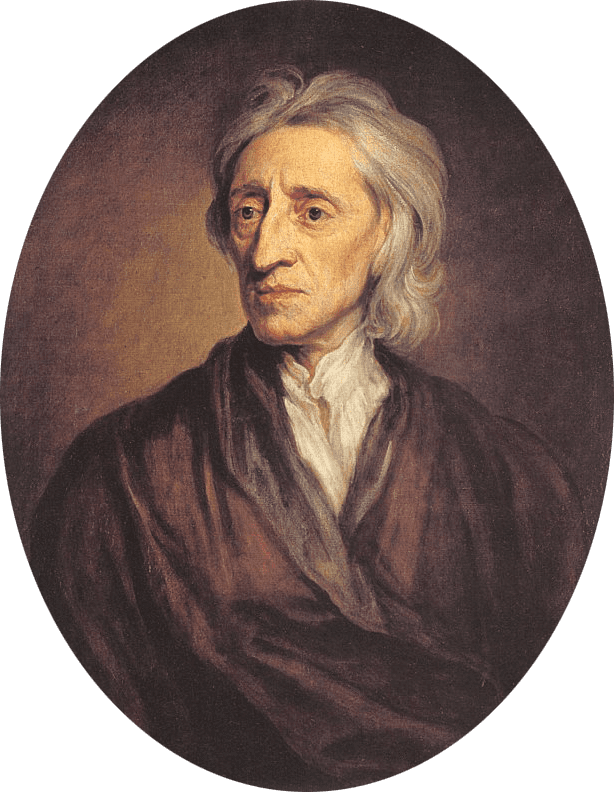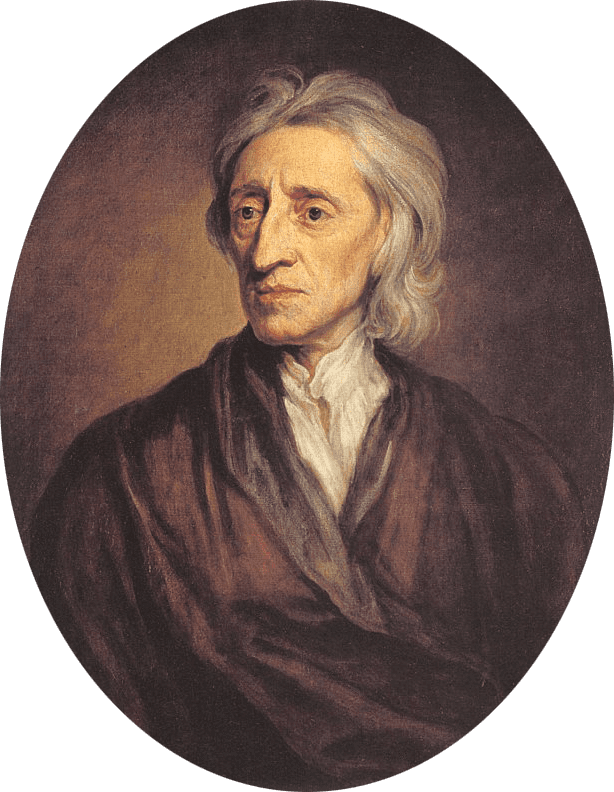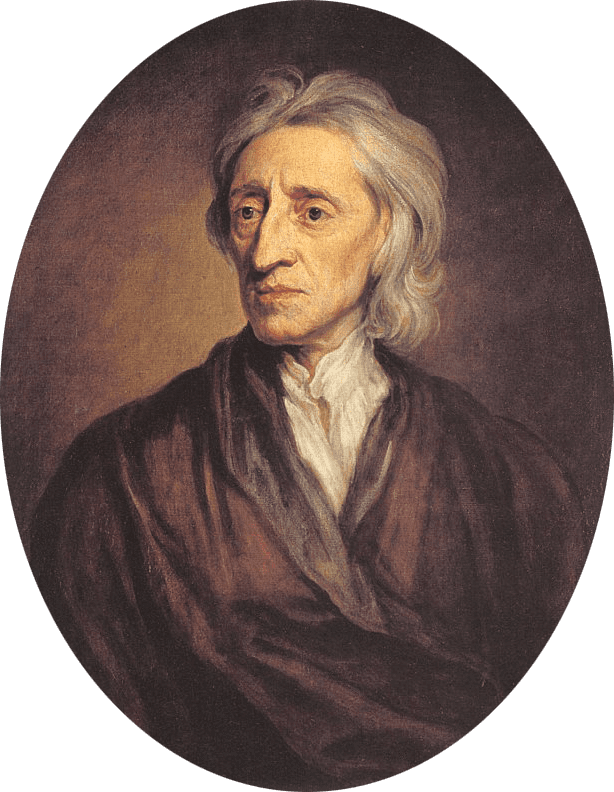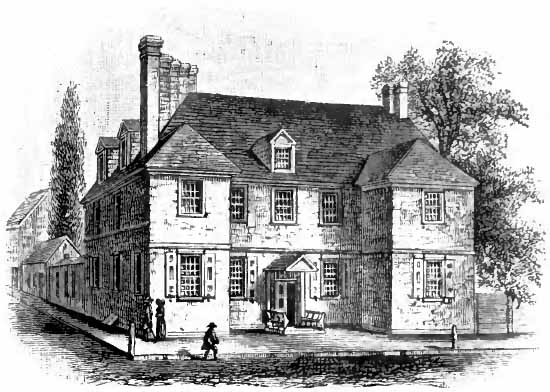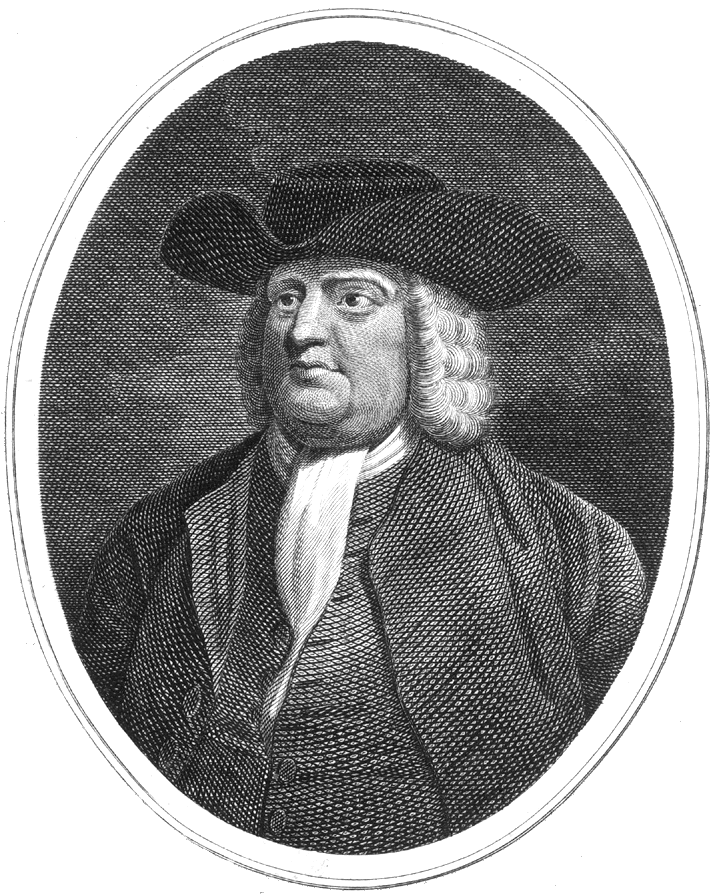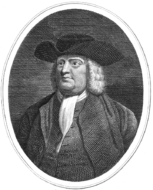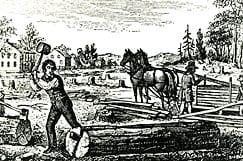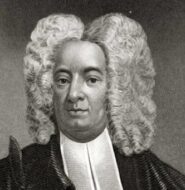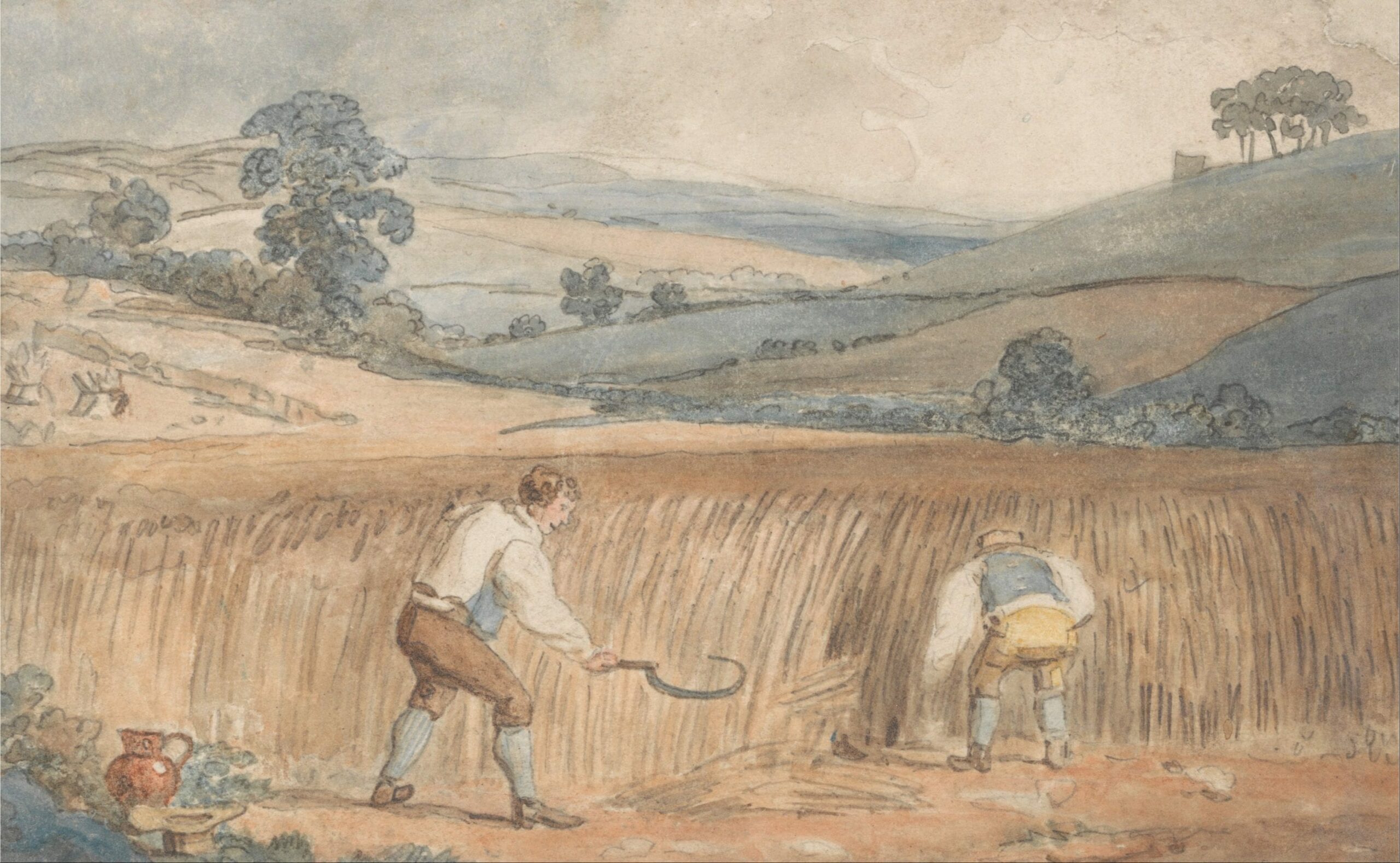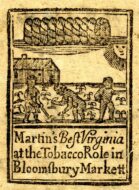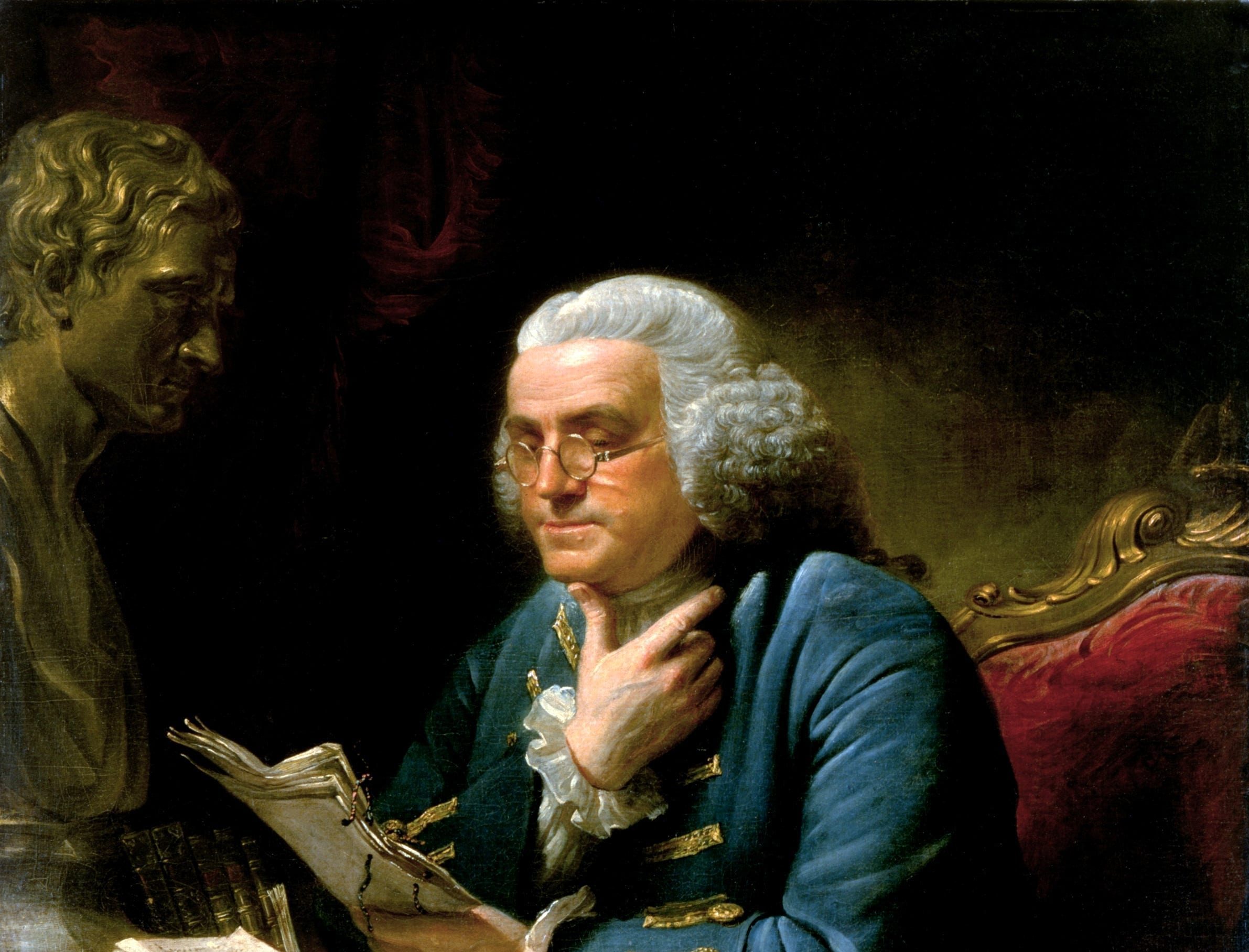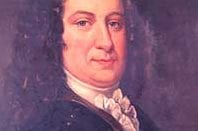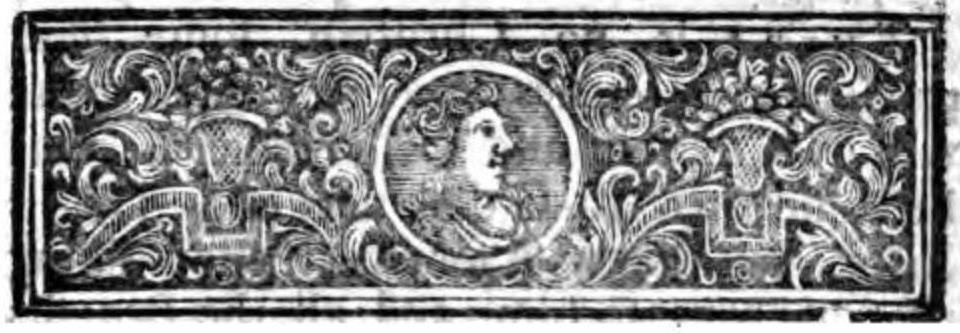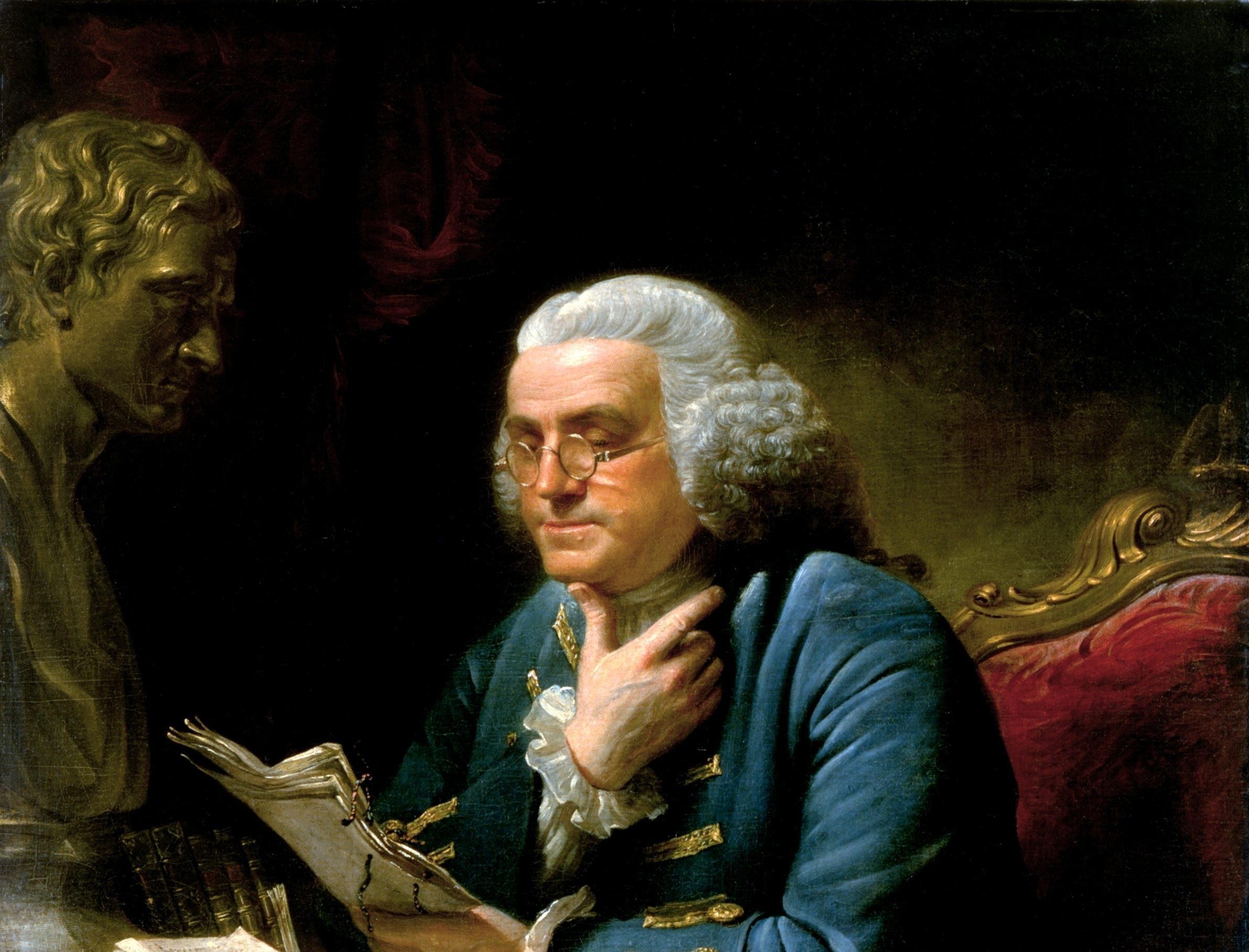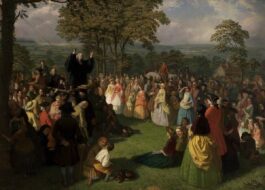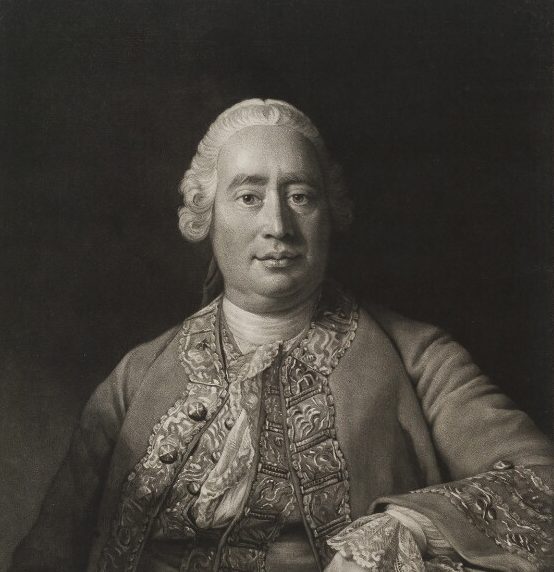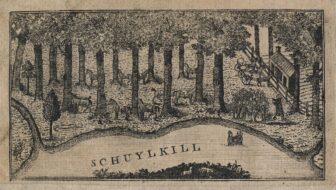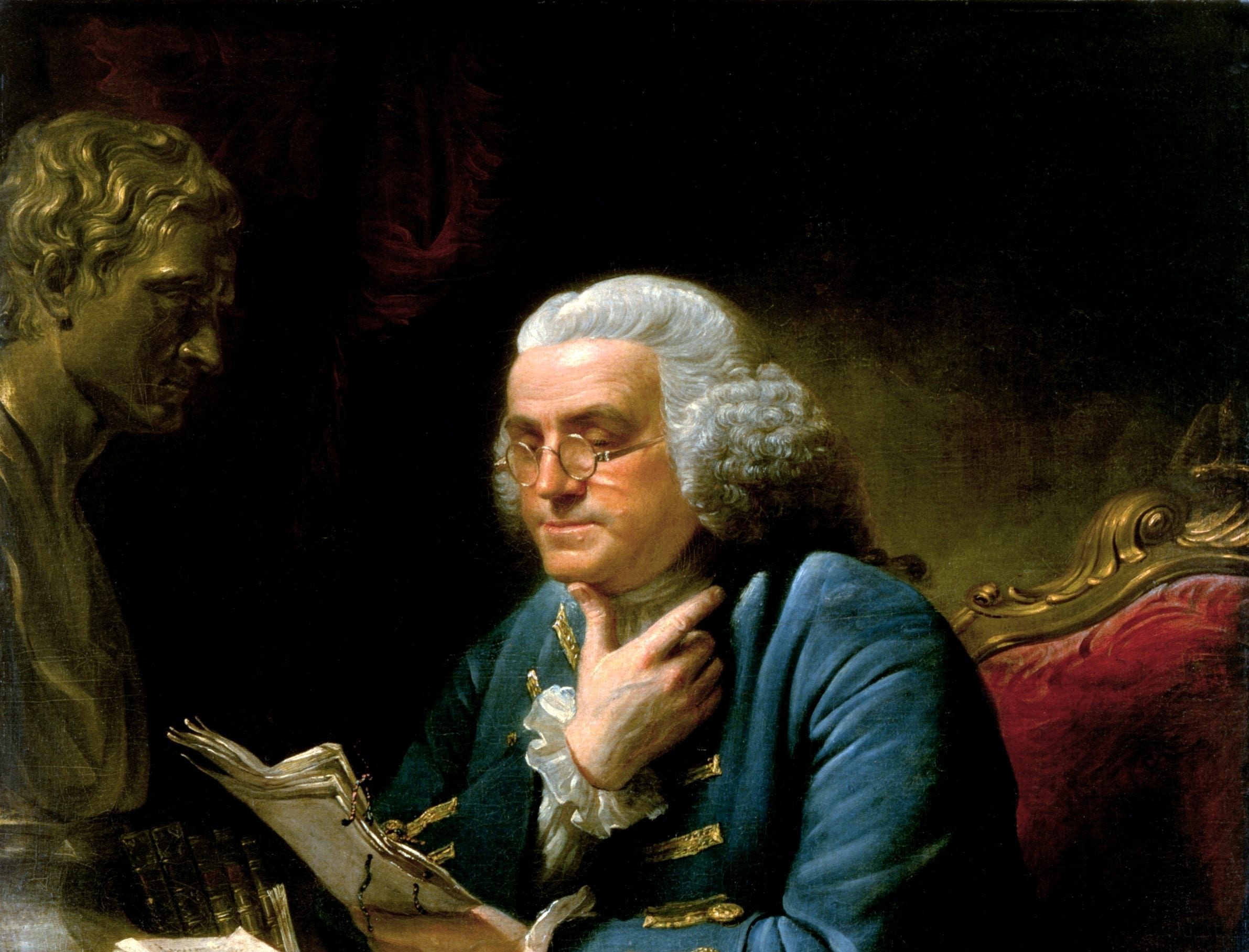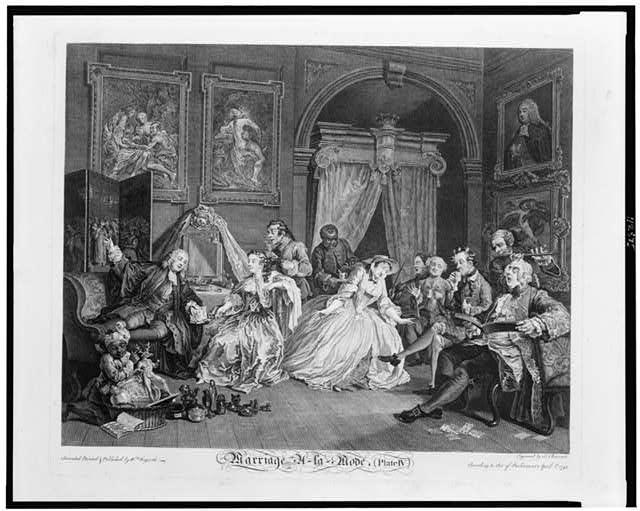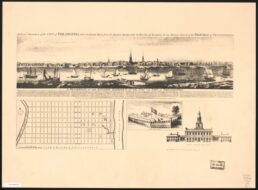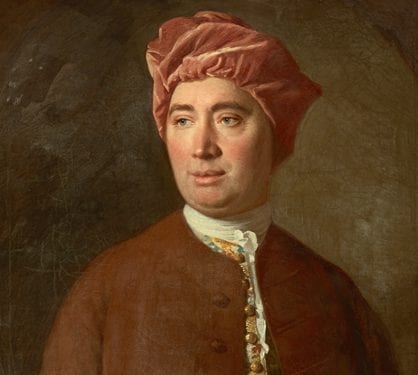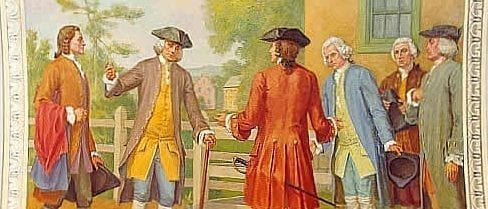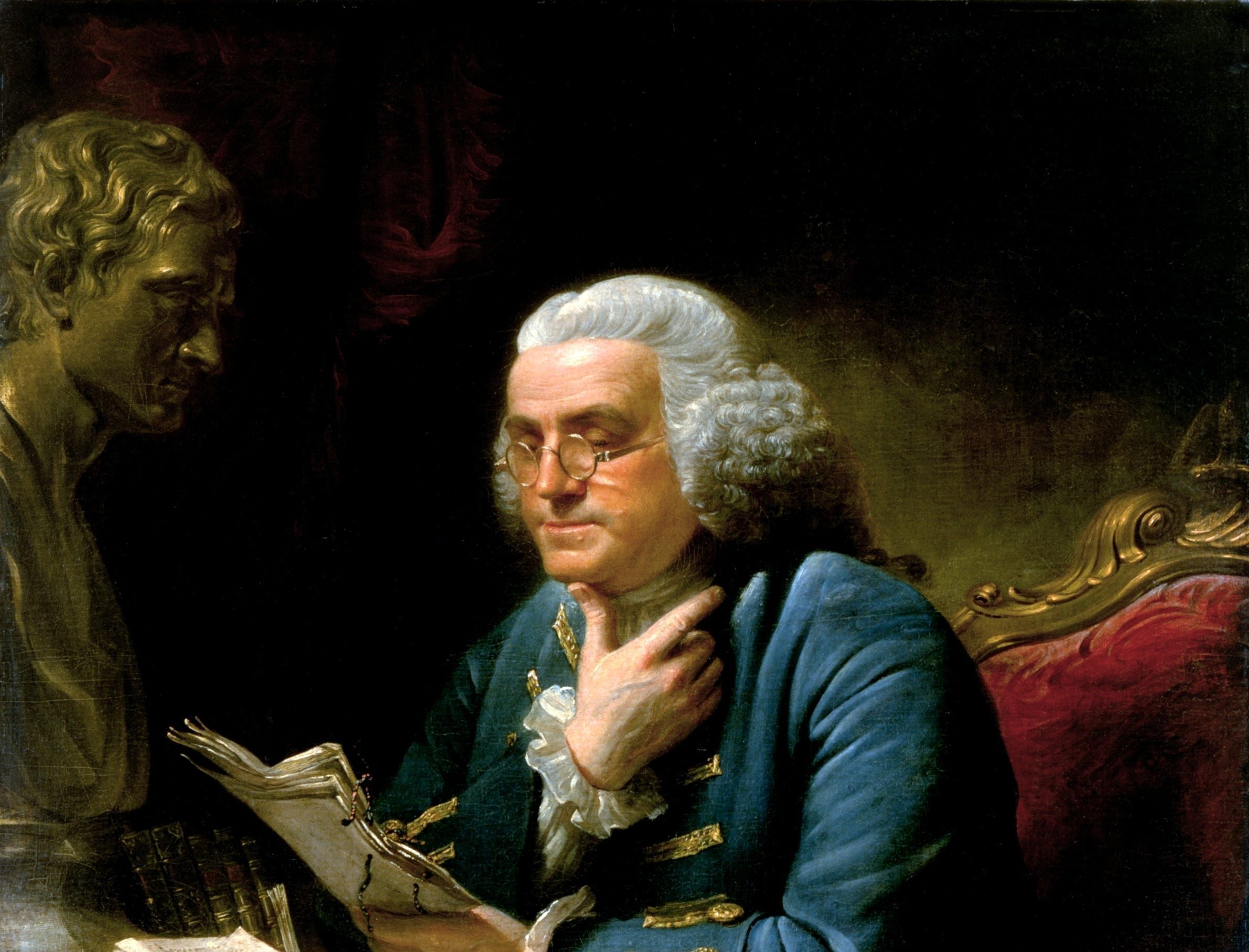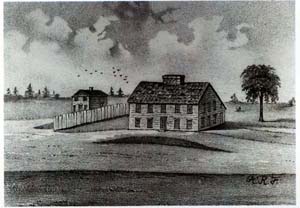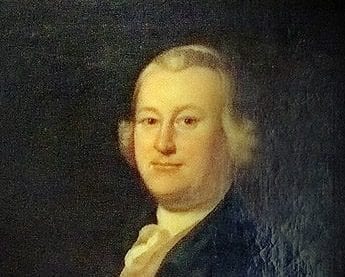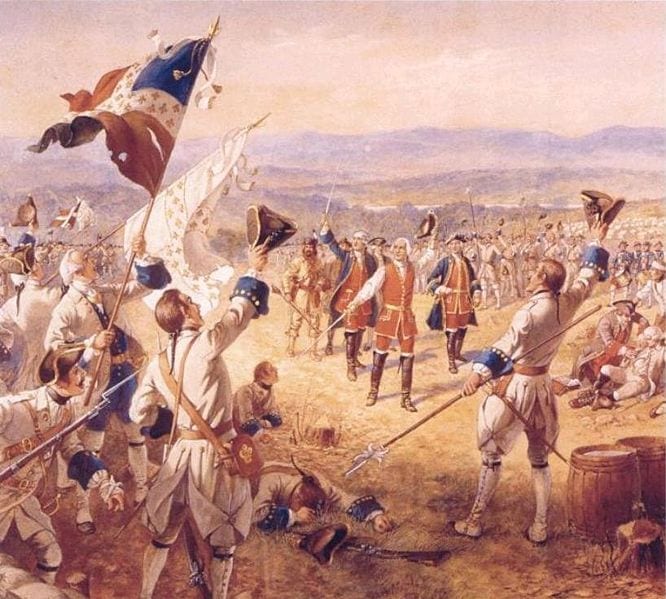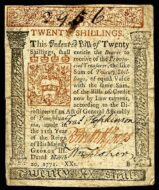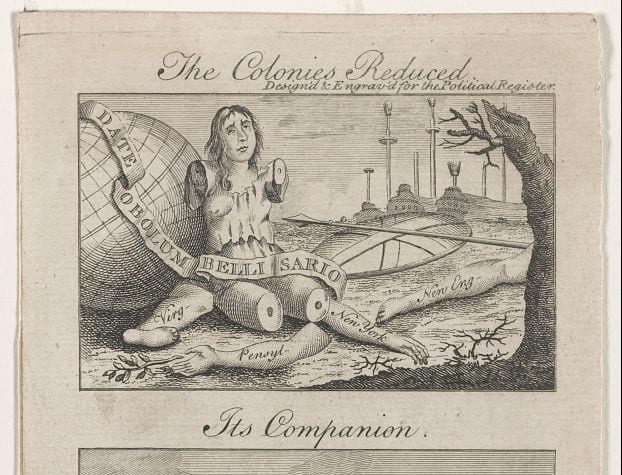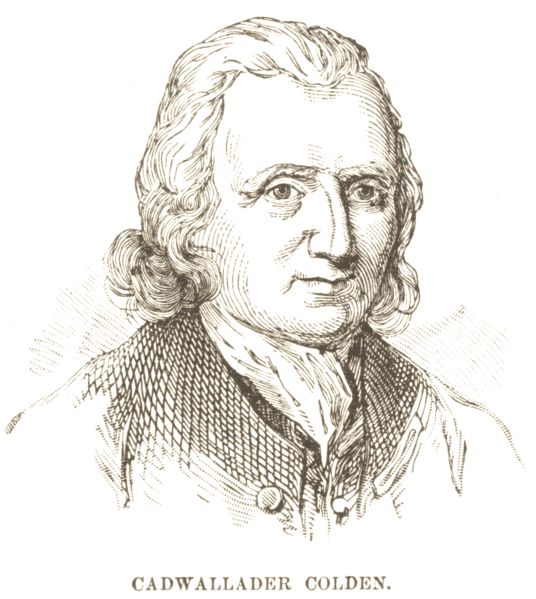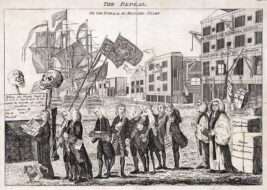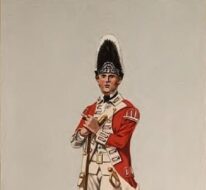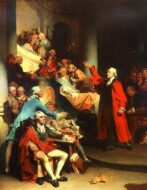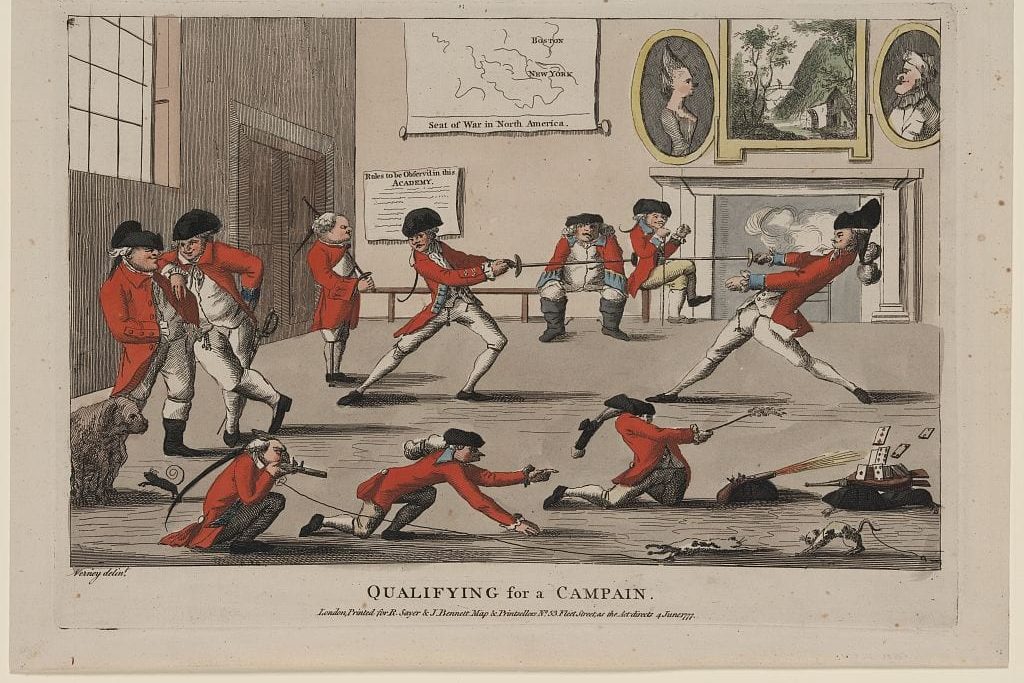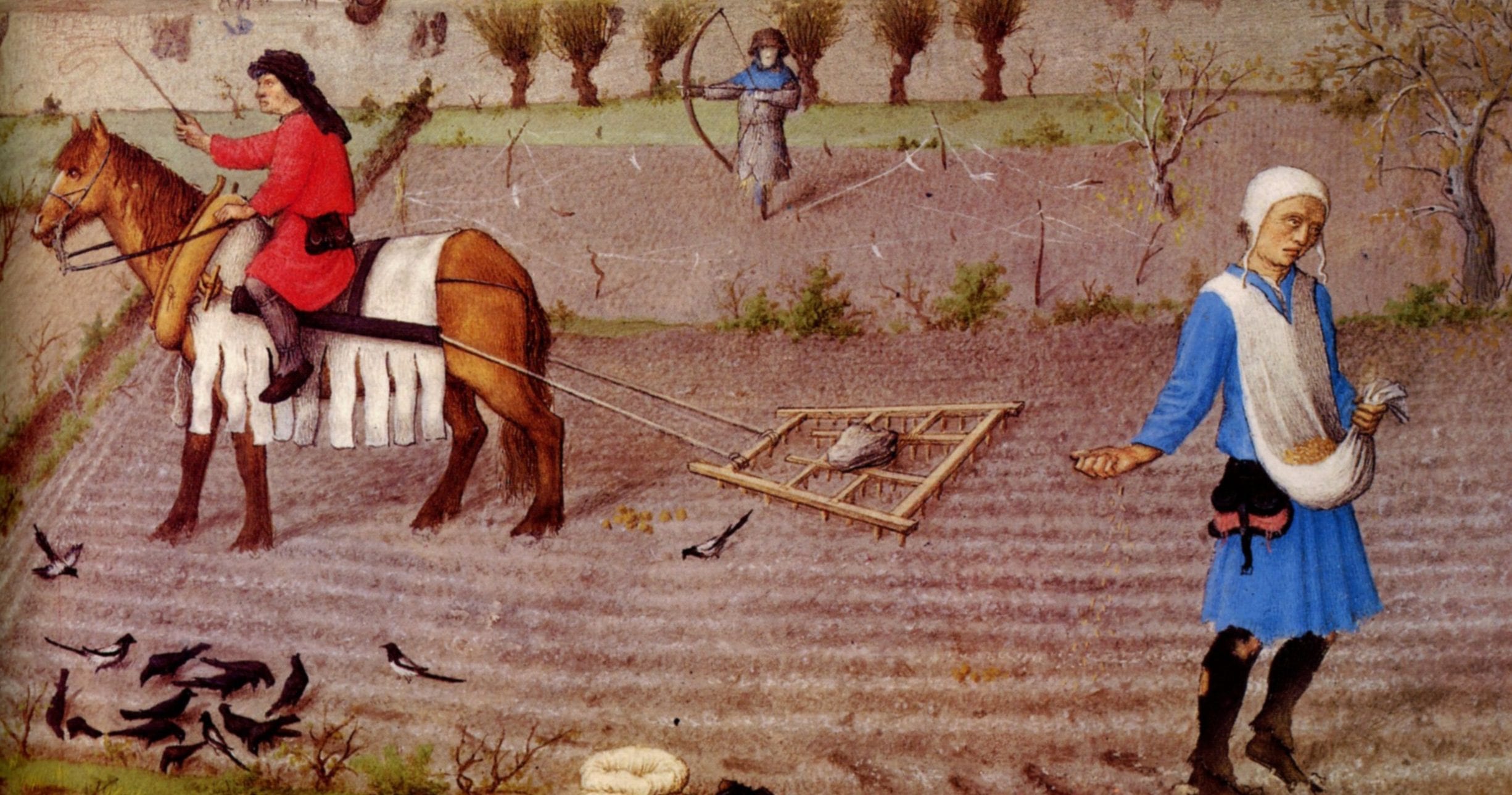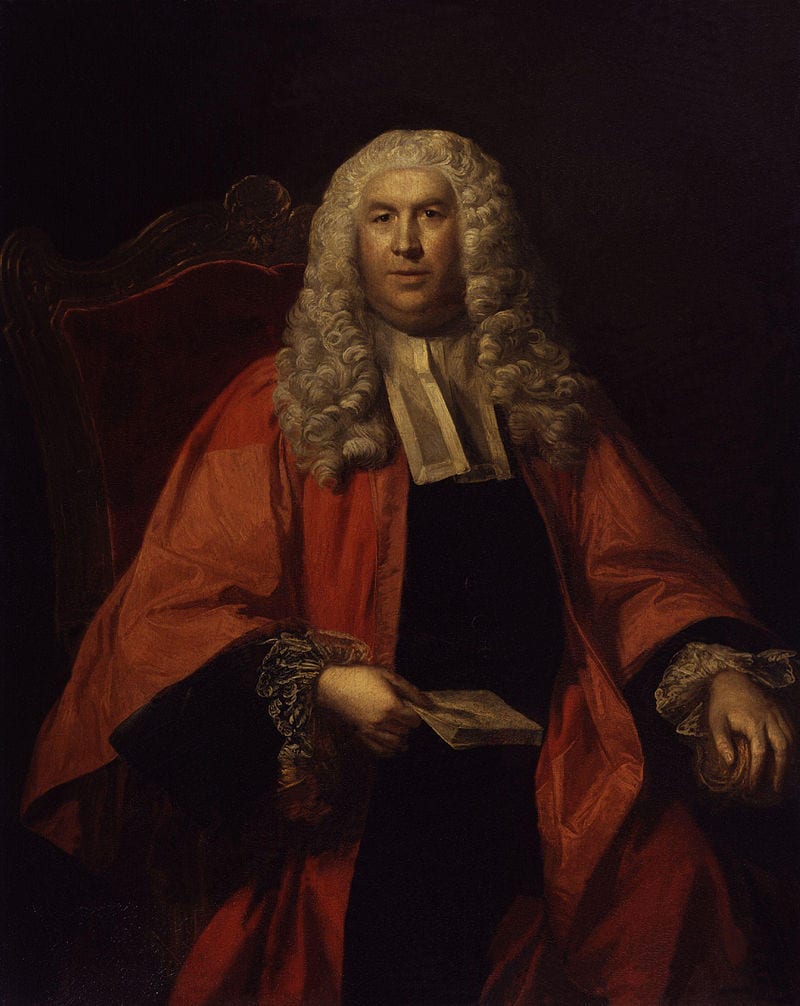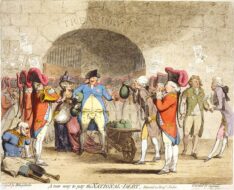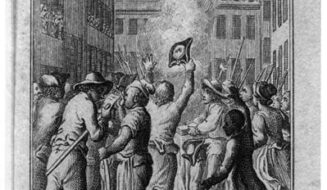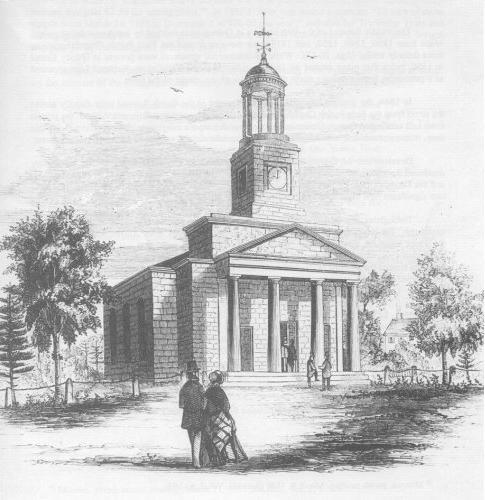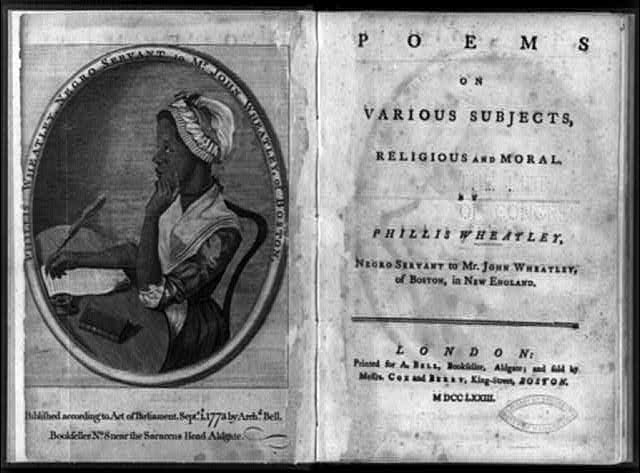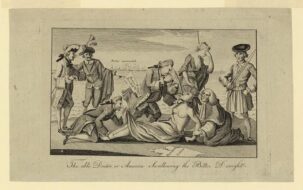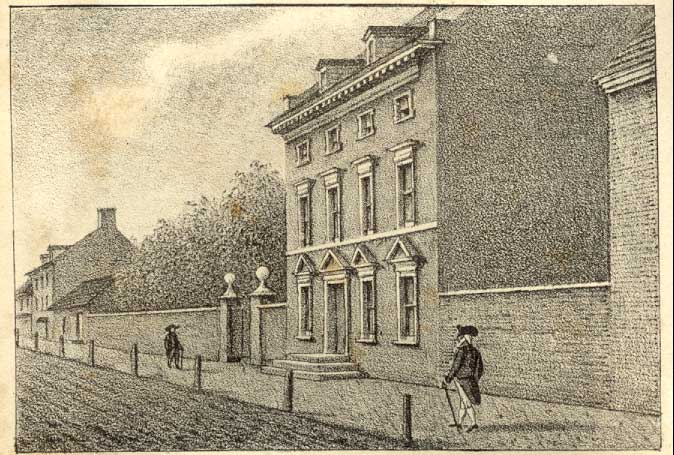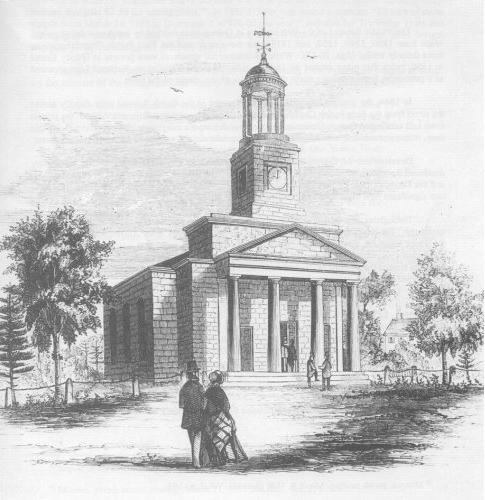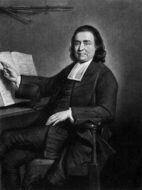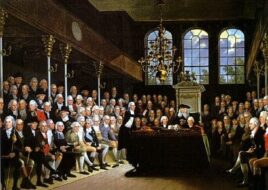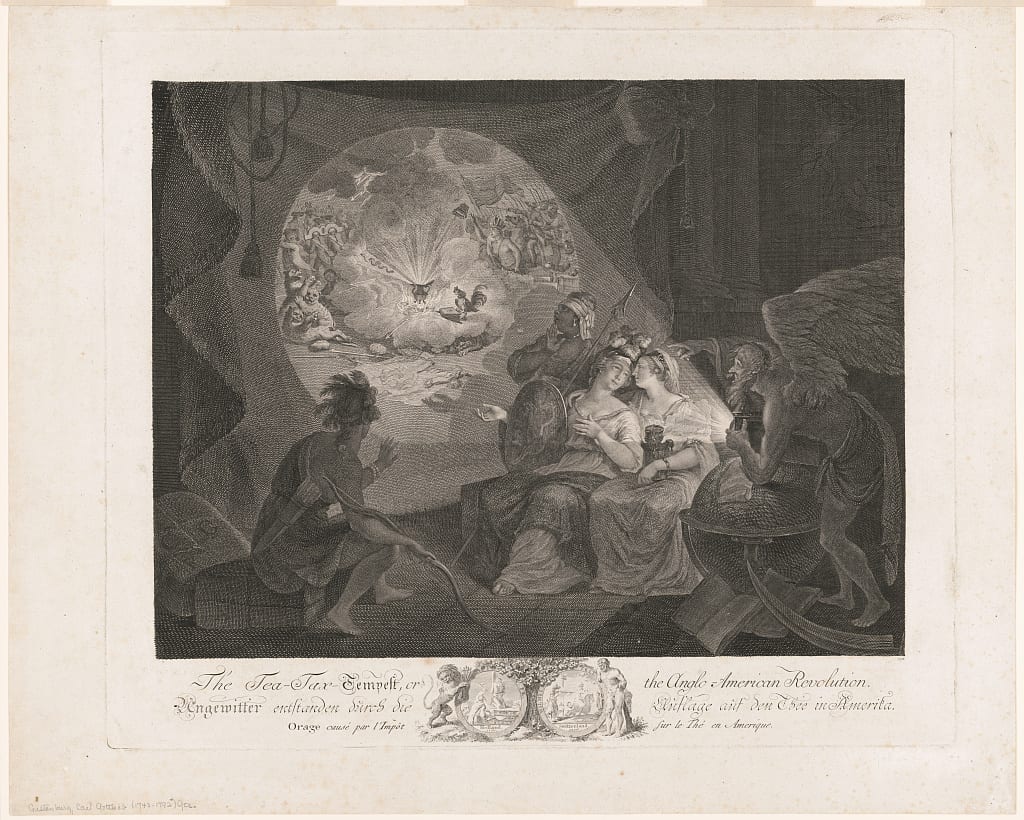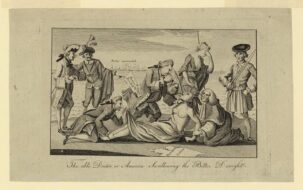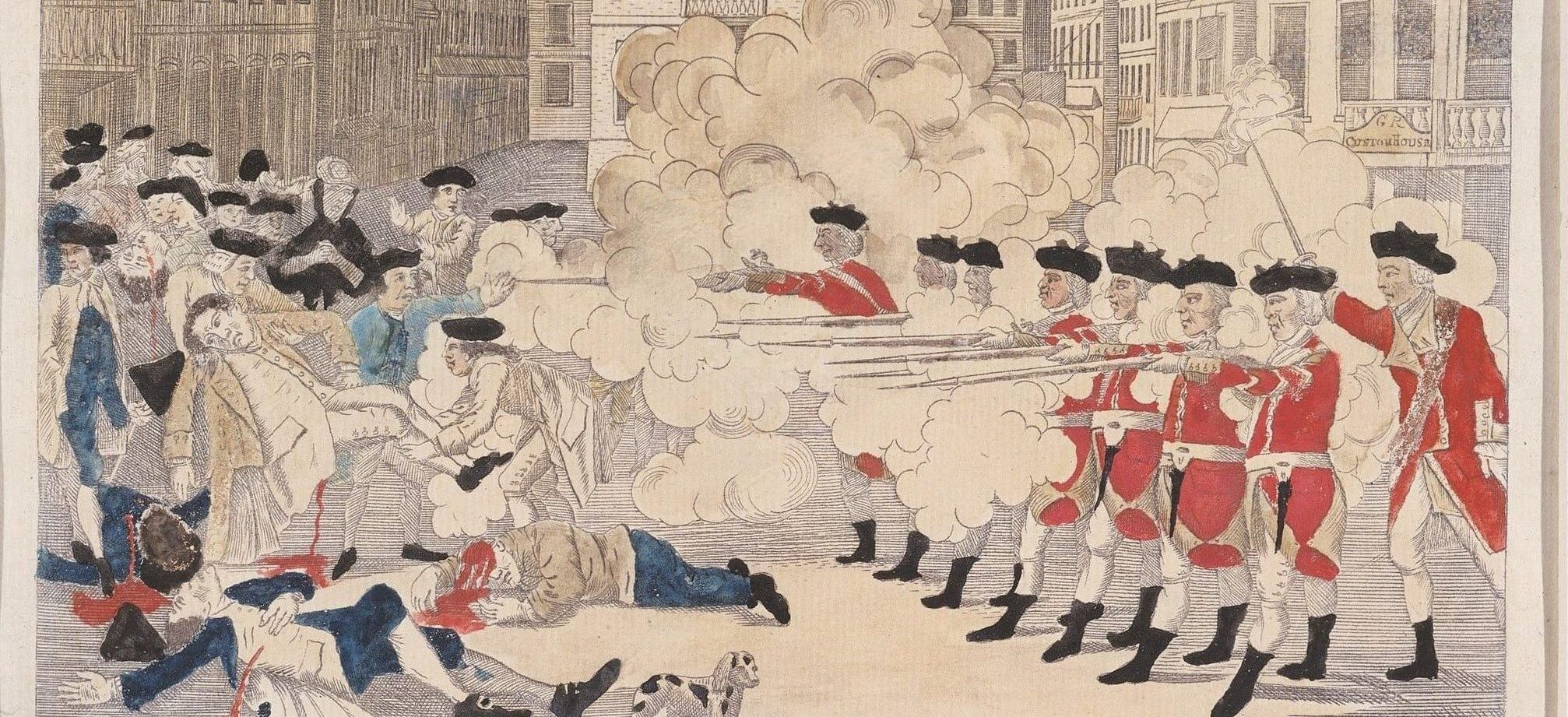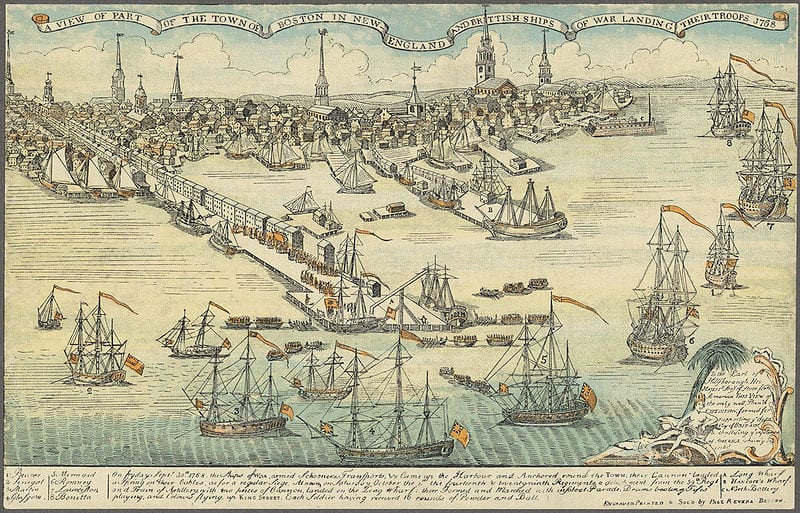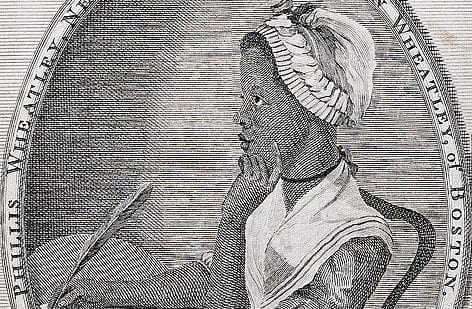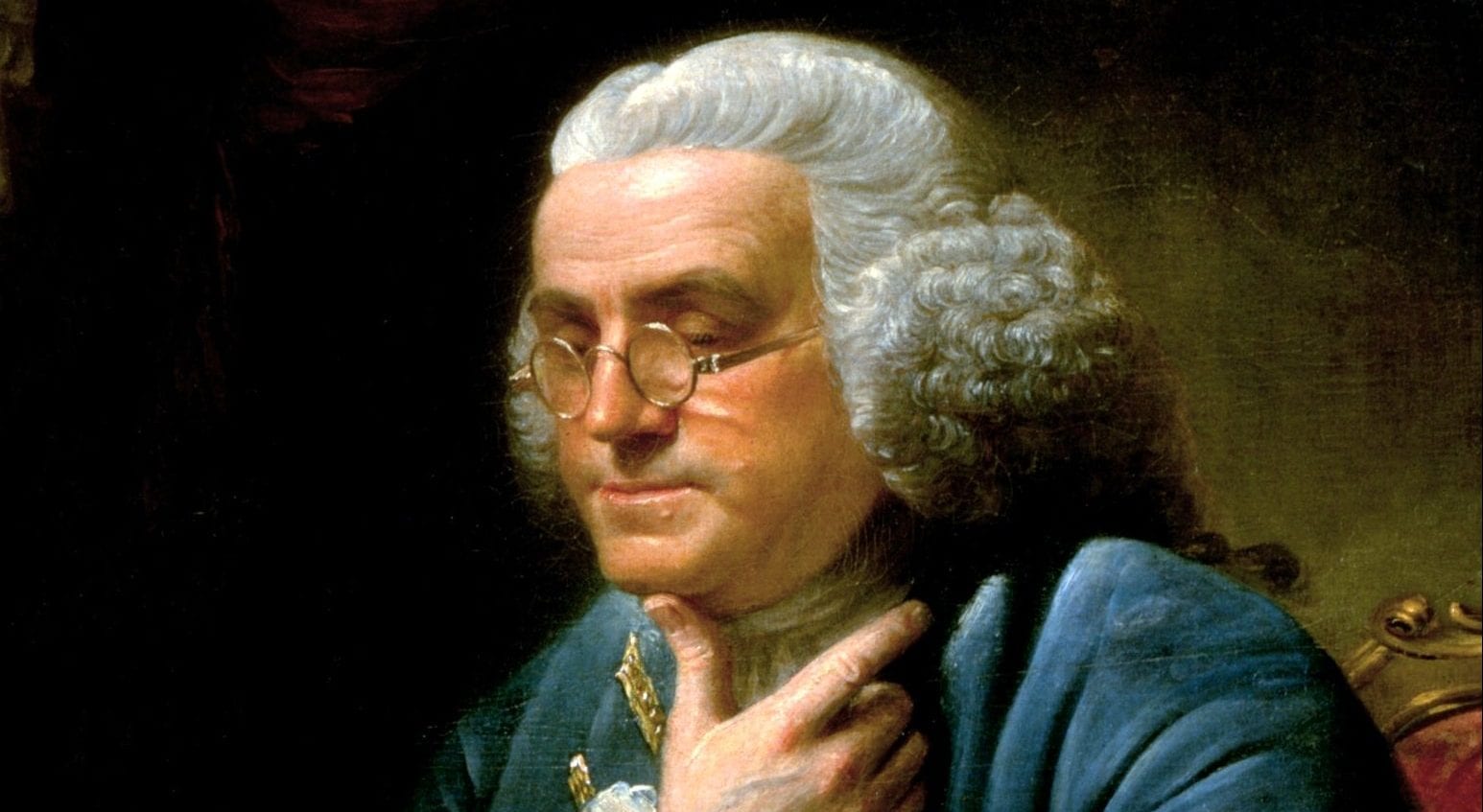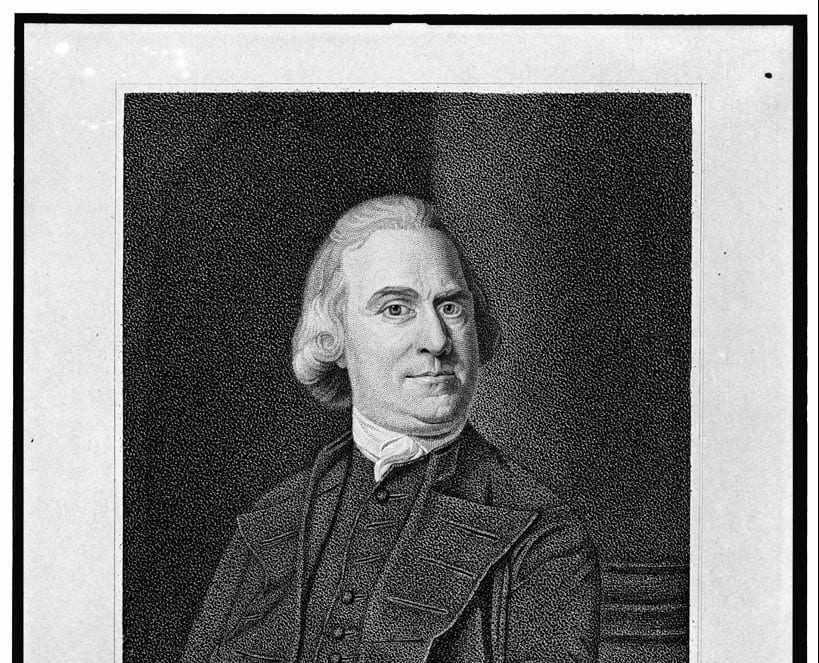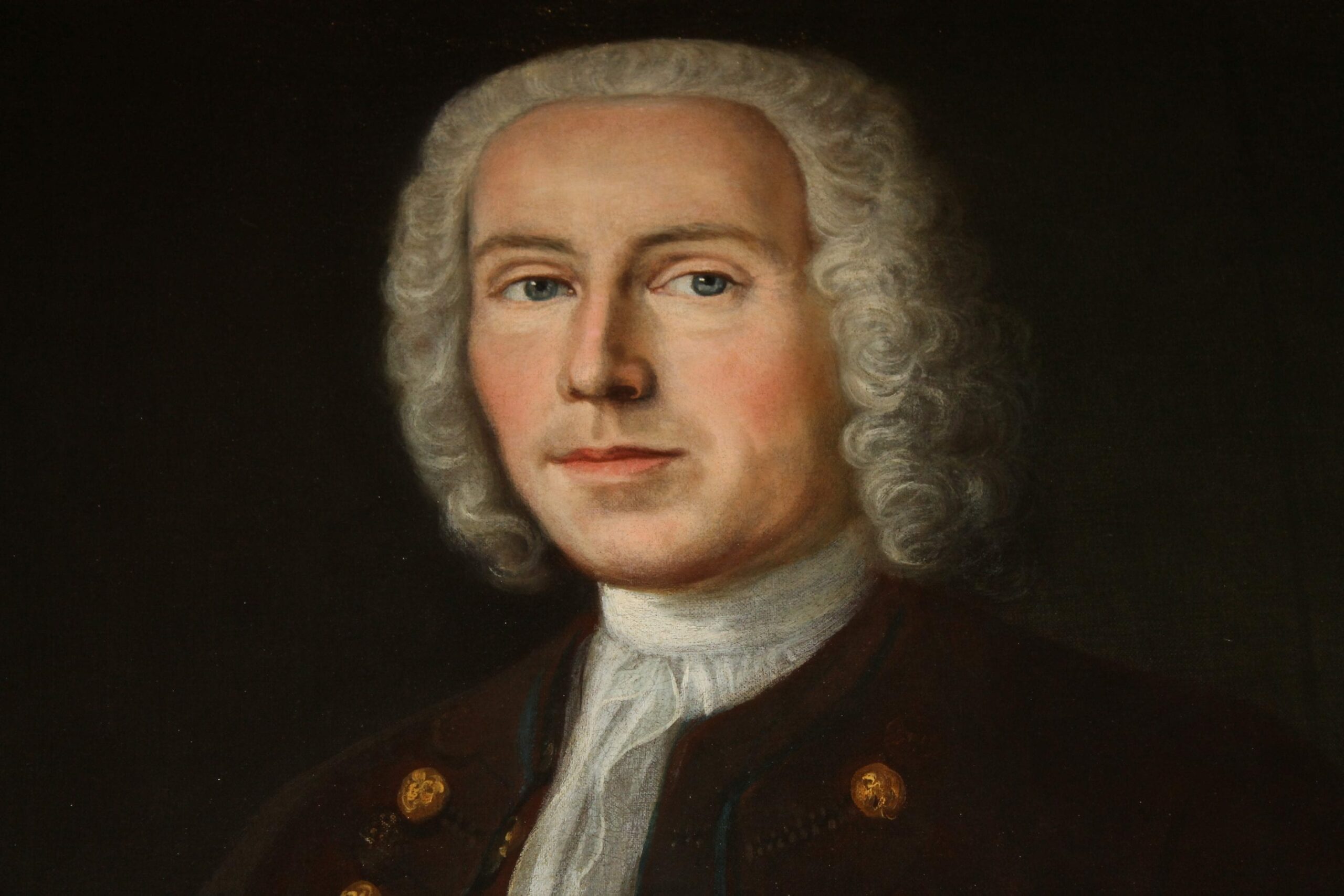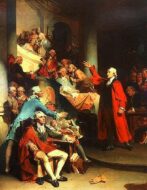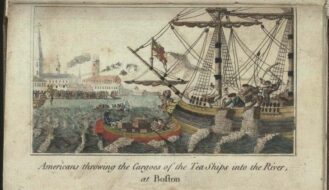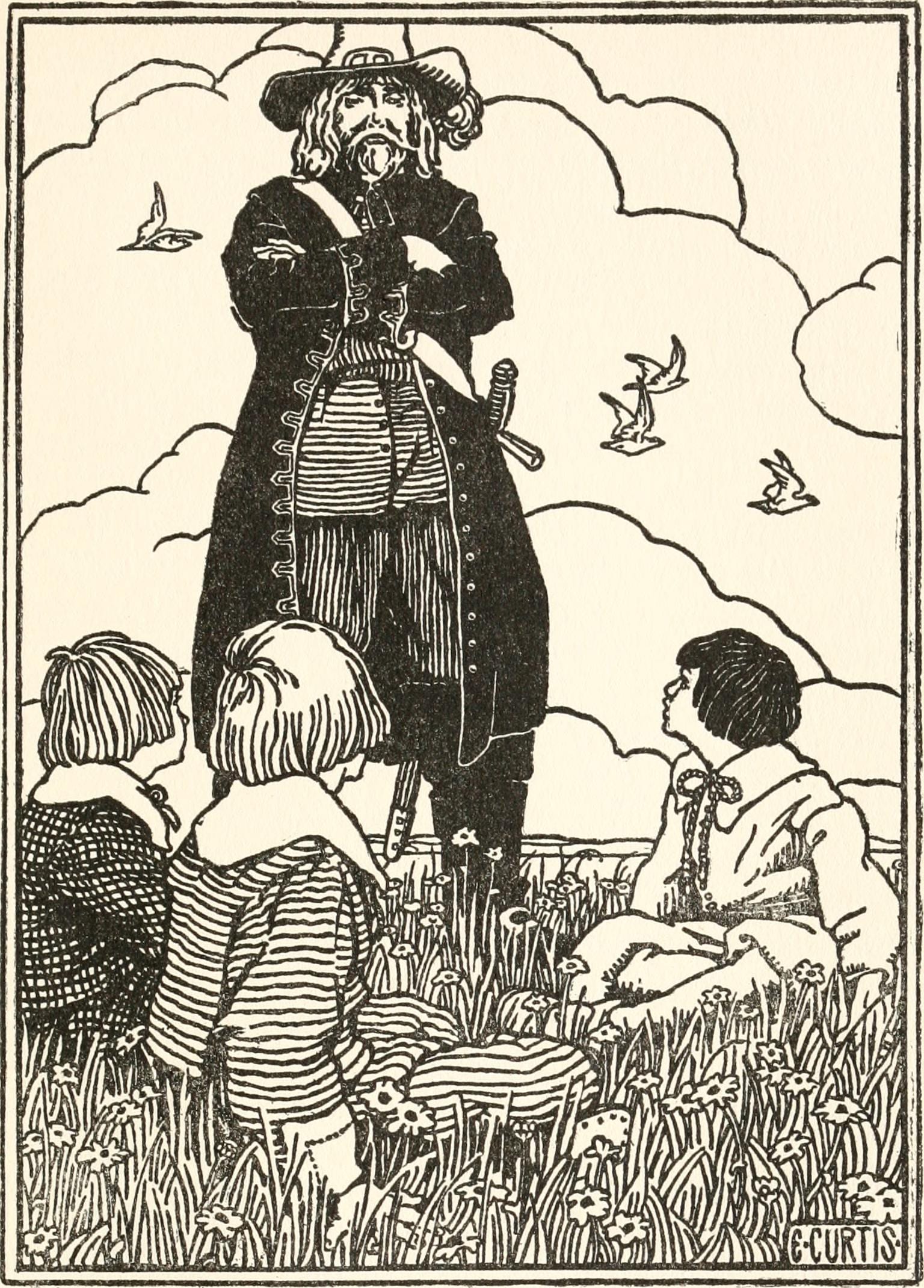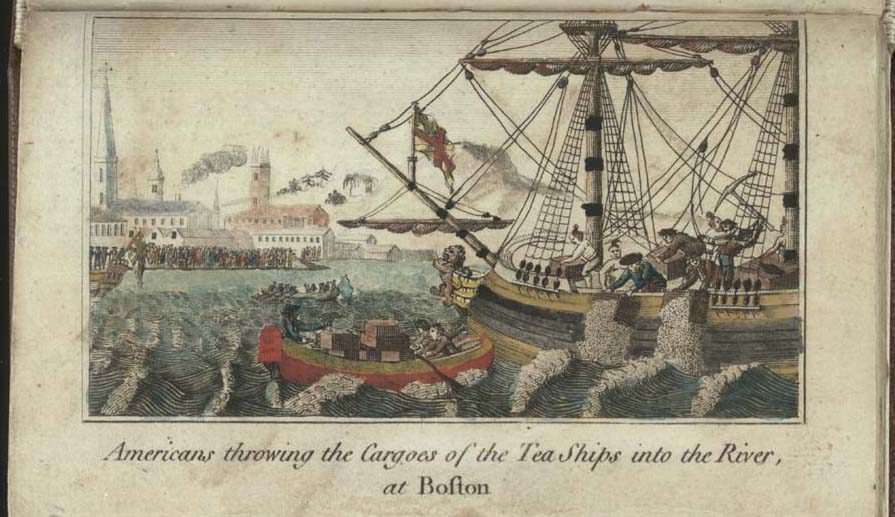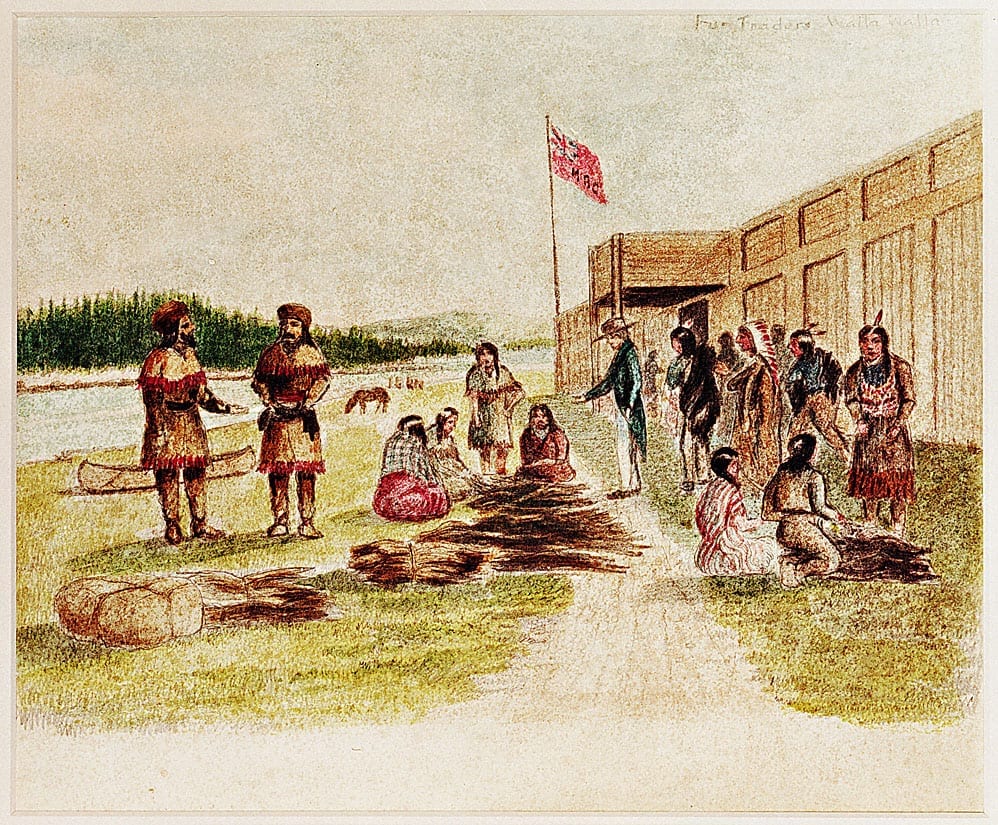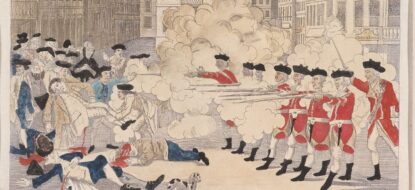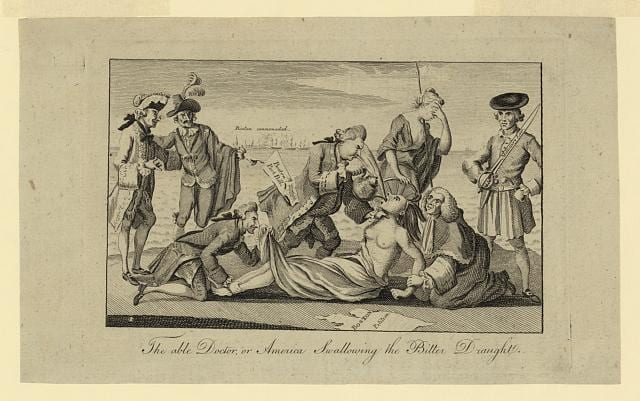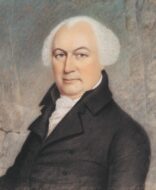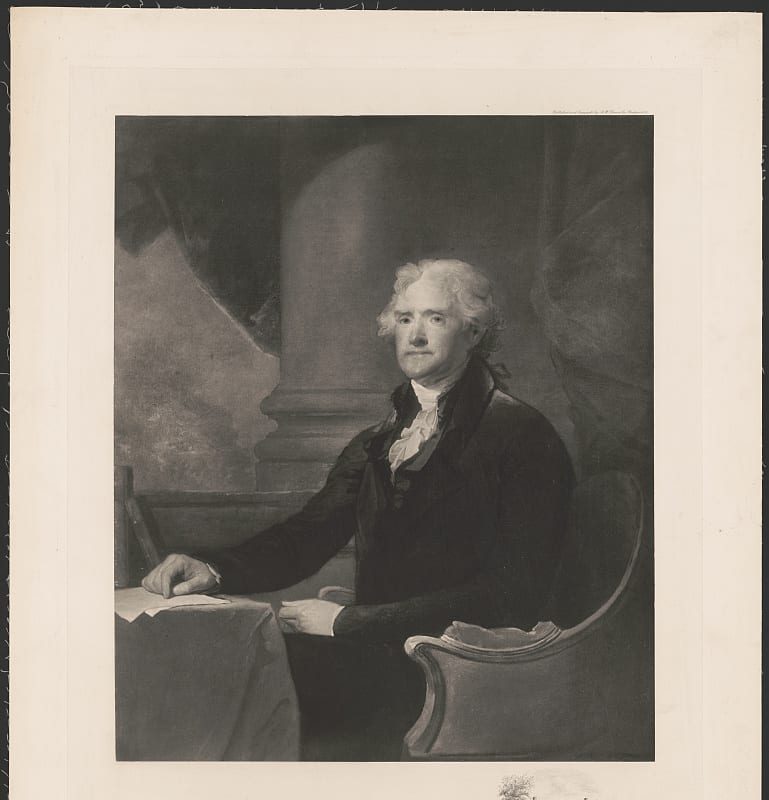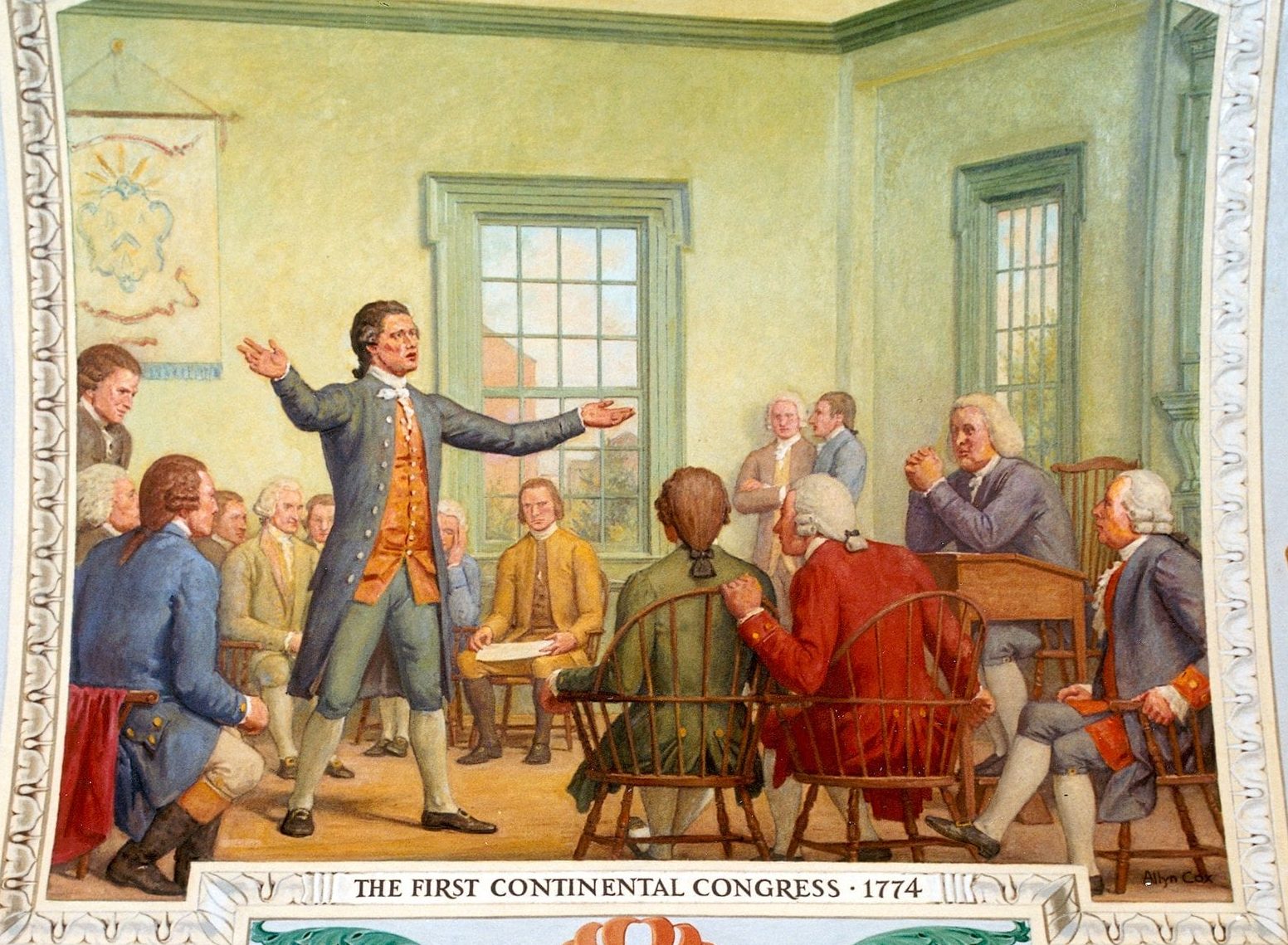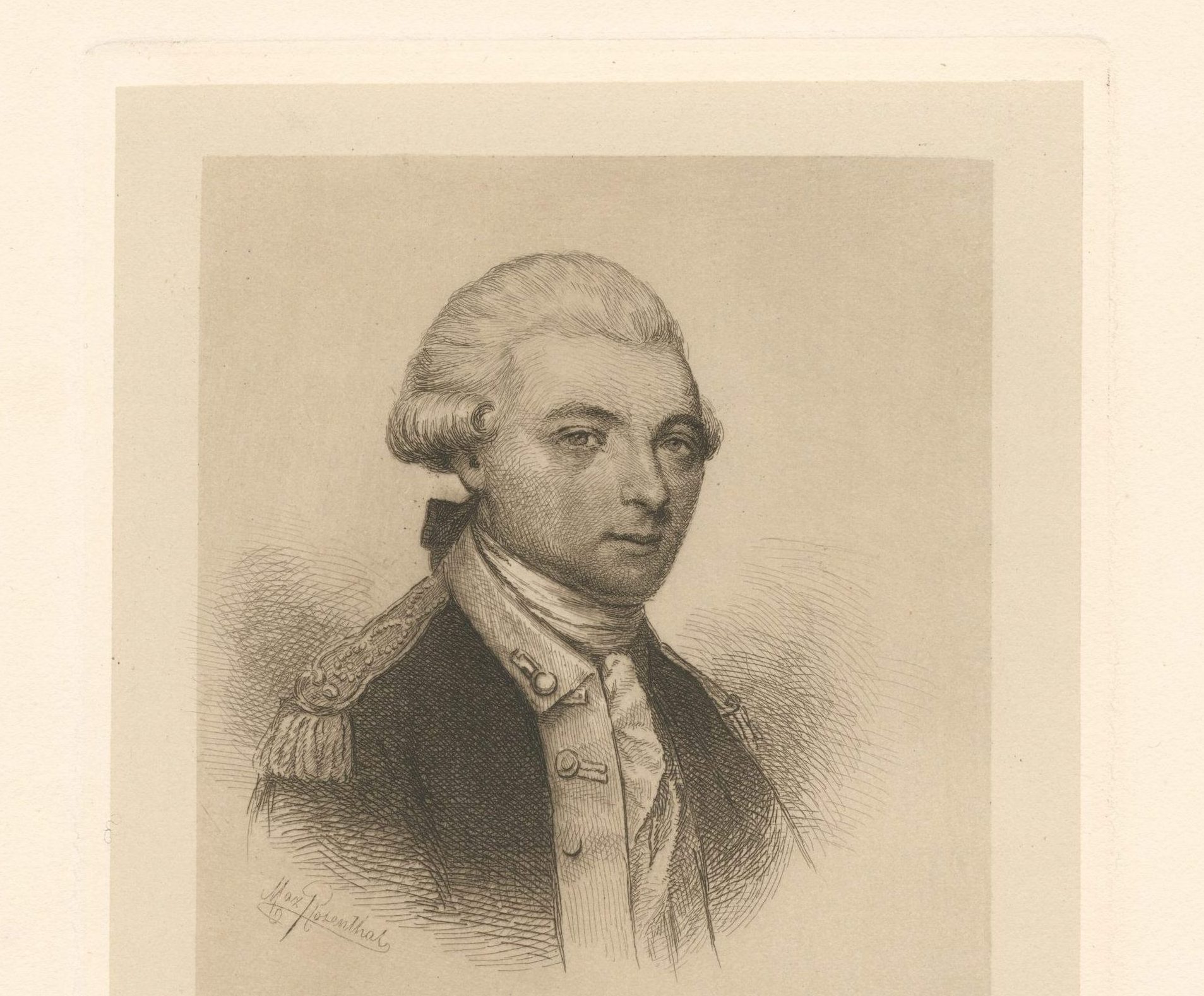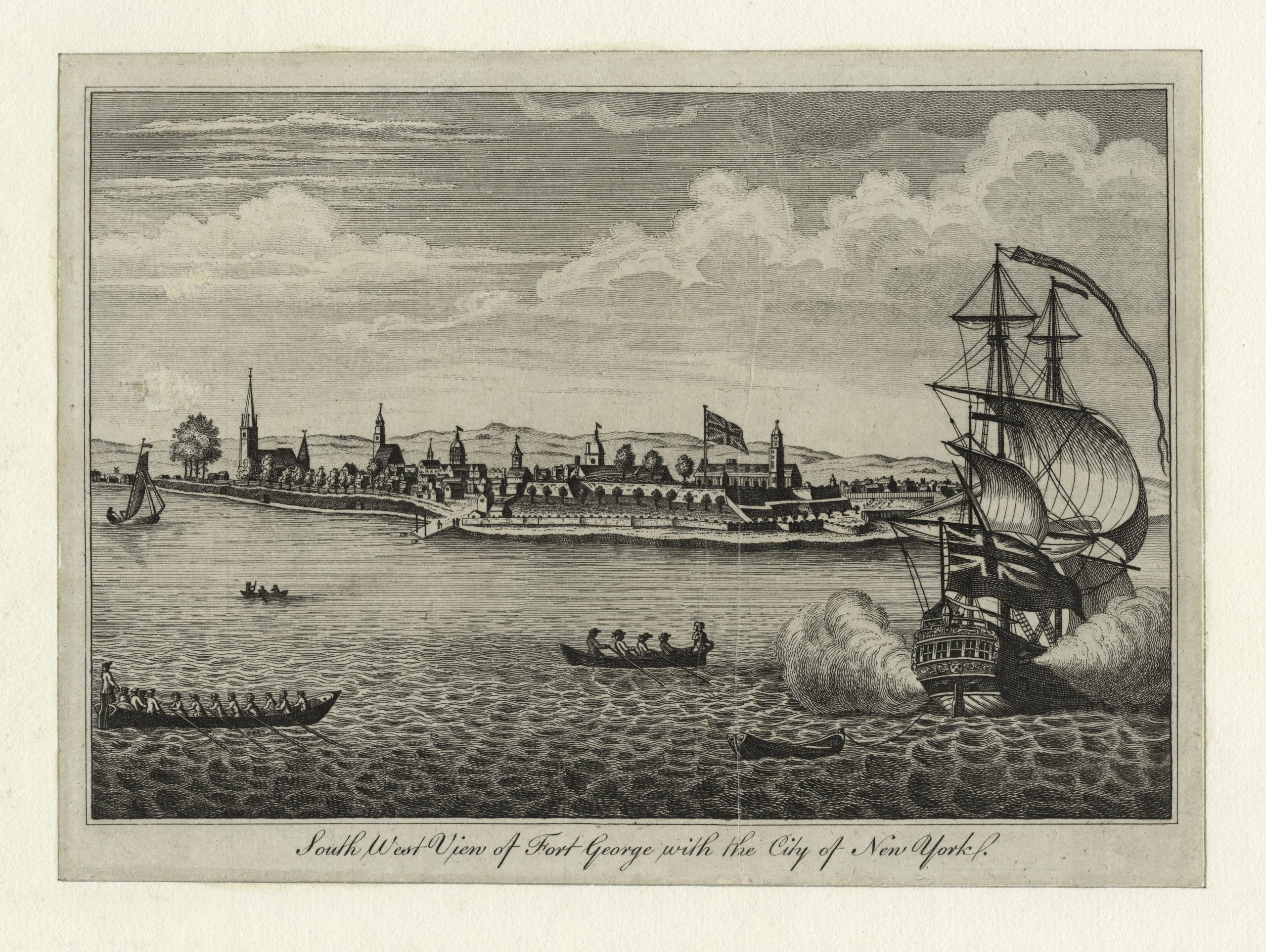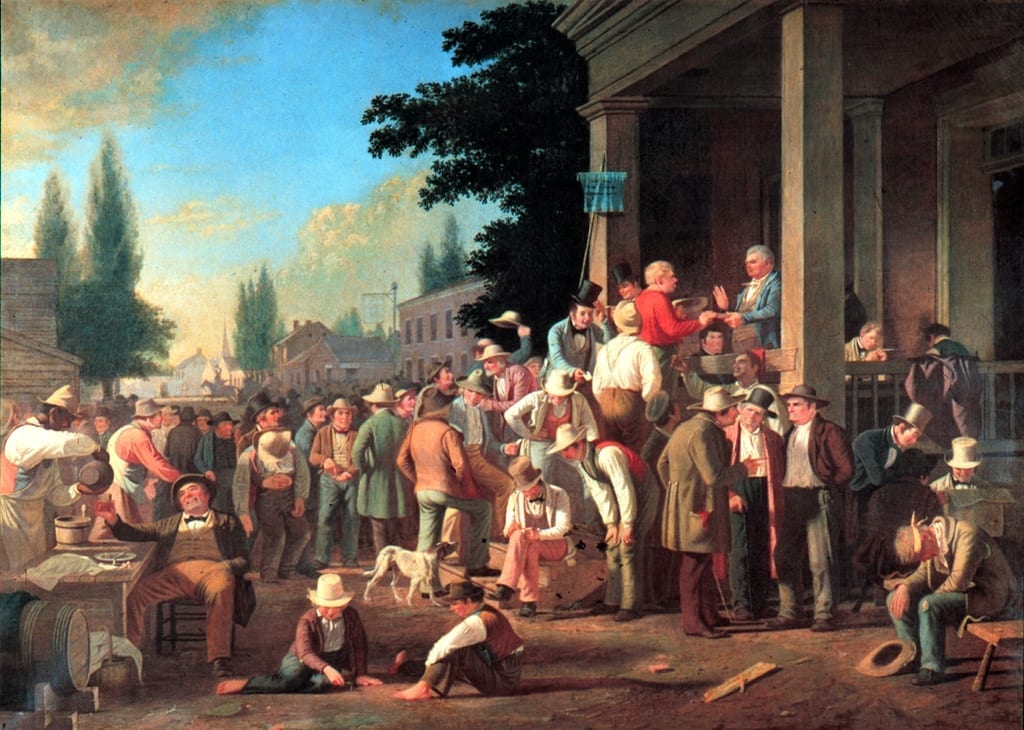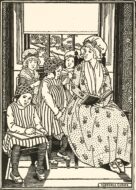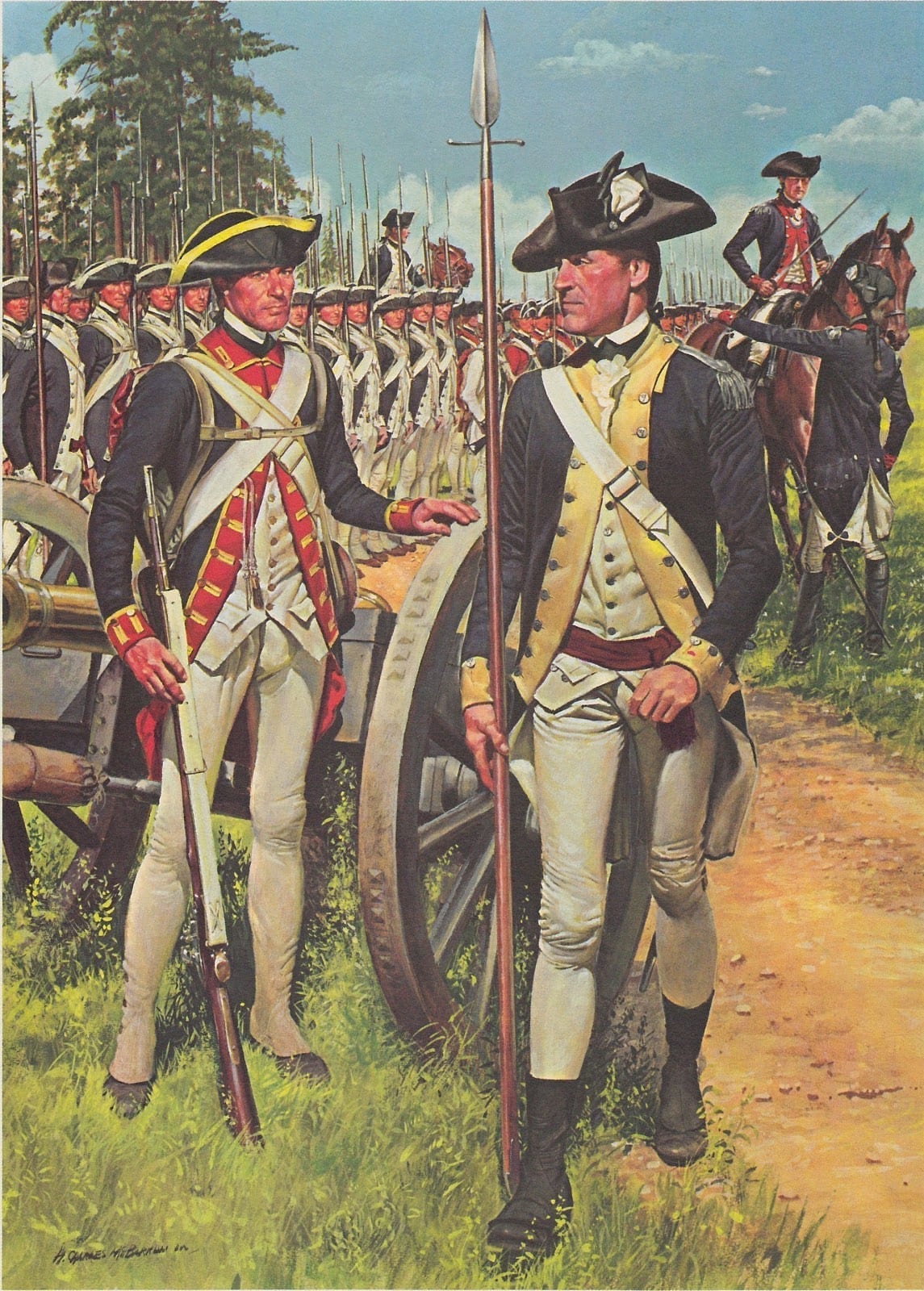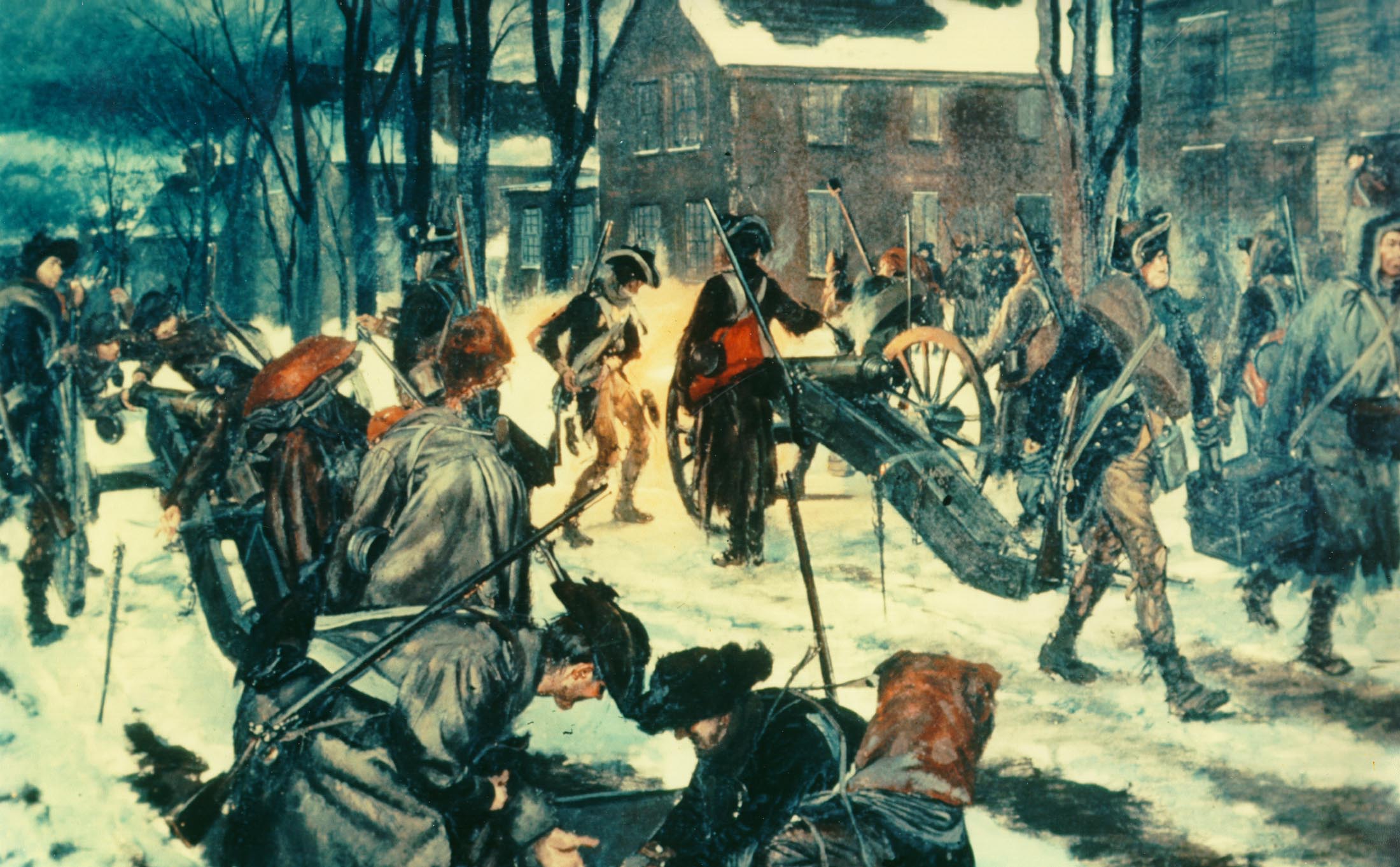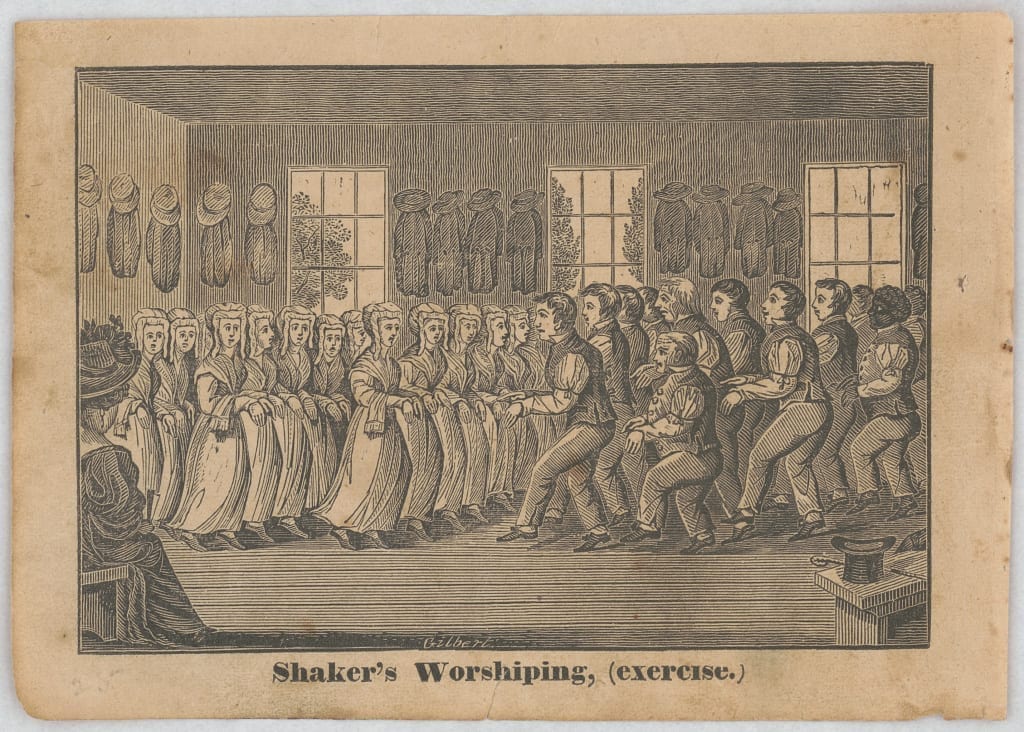
Introduction
The Coercive Acts not only sparked outrage among the common people whom Gouverneur Morris (1752–1816) derided as members of the mob; they also inflamed the indignation of Americans who occupied positions of power and influence. One such person was Thomas Jefferson (1743–1826), a member of Virginia’s House of Burgesses who helped write a May 1774 resolution designating a day of fasting and prayer to show solidarity with the people of Massachusetts. Soon after, Lord Dunmore (1730–1809), the royal governor, showed his solidarity with Parliament by dissolving the House of Burgesses. As the elected members of that body prepared to regroup as the extralegal Virginia Convention, Jefferson drafted for its consideration his Summary View of the Rights of British America.
The 31-year-old’s argument represented the next step in the progression of radical thought. While earlier critiques of British measures had denied the authority of Parliament to tax the colonies, Jefferson’s Summary View held that “the British Parliament has no right to exercise authority over us” in any circumstance. While earlier opponents of Britain’s policies had laid blame on Parliament, Jefferson’s argument elevated responsibility to the level of the king. “Let not the name of George the third be a blot in the page of history,” Jefferson wrote, reminding the monarch that “kings are the servants, not the proprietors of the people.”
While stirring, Jefferson’s words struck many as too much, too soon. The Virginia Convention declined to adopt his statement as its own. Several of its members, however, arranged to have it published in Williamsburg as a pamphlet. Soon presses in Philadelphia and London printed their own editions of the Summary View, which, like most political pamphlets of the era, appeared without its author’s name on the title page. Even so, word spread of Jefferson’s role. In the summer of 1775 his reputation preceded his arrival as a delegate to the Second Continental Congress, where Rhode Island representative Samuel Ward (1725–1776) recorded his first impression of “the famous Mr. Jefferson,” whom he sized up as “a very sensible, spirited, fine fellow—and by the pamphlet he wrote last summer, he certainly is one.”
Source: [Thomas Jefferson,] A Summary View of the Rights of British America: Set Forth in Some Resolutions Intended for the Inspection of the Present Delegates of the People of Virginia, Now in Convention (Williamsburg, Va.: Clementina Rind, 1774). https://www.loc.gov/item/08016823/.
RESOLVED, that it be an instruction to the said deputies, when assembled in general congress with the deputies from the other states of British America, to propose to the said congress that a humble and dutiful address be presented to his majesty, begging leave to lay before him, as chief magistrate of the British empire, the united complaints of his majesty’s subjects in America; complaints which are excited by many unwarrantable encroachments and usurpations, attempted to be made by the legislature of one part of the empire, upon those rights which God and the laws have given equally and independently to all. To represent to his majesty that these his states have often individually made humble application to his imperial throne to obtain, through its intervention, some redress of their injured rights, to none of which was ever even an answer condescended; humbly to hope that this their joint address, penned in the language of truth, and divested of those expressions of servility which would persuade his majesty that we are asking favors, and not rights, shall obtain from his majesty a more respectful acceptance. And this his majesty will think we have reason to expect when he reflects that he is no more than the chief officer of the people, appointed by the laws, and circumscribed with definite powers, to assist in working the great machine of government, erected for their use, and consequently subject to their superintendence. And in order that these our rights, as well as the invasions of them, may be laid more fully before his majesty, to take a view of them from the origin and first settlement of these countries.
To remind him that our ancestors, before their emigration to America, were the free inhabitants of the British dominions in Europe, and possessed a right which nature has given to all men, of departing from the country in which chance, not choice, has placed them, of going in quest of new habitations, and of there establishing new societies, under such laws and regulations as to them shall seem most likely to promote public happiness…. Nor was ever any claim of superiority or dependence asserted over them by that mother country from which they had migrated; and were such a claim made, it is believed that his majesty’s subjects in Great Britain have too firm a feeling of the rights derived to them from their ancestors, to bow down the sovereignty of their state before such visionary pretensions…..America was conquered, and her settlements made, and firmly established, at the expense of individuals, and not of the British public. Their own blood was spilt in acquiring lands for their settlement, their own fortunes expended in making that settlement effectual; for themselves they fought, for themselves they conquered, and for themselves alone they have right to hold. Not a shilling was ever issued from the public treasures of his majesty, or his ancestors, for their assistance, until of very late times, after the colonies had become established on a firm and permanent footing.... Settlements having been thus effected in the wilds of America, the emigrants thought proper to adopt that system of laws under which they had hitherto lived in the mother country, and to continue their union with her by submitting themselves to the same common sovereign, who was thereby made the central link connecting the several parts of the empire thus newly multiplied.
But that not long were they permitted, however far they thought themselves removed from the hand of oppression, to hold undisturbed the rights thus acquired, at the hazard of their lives, and loss of their fortunes. A family of princes was then on the British throne, whose treasonable crimes against their people brought on them afterwards the exertion of those sacred and sovereign rights of punishment reserved in the hands of the people for cases of extreme necessity, and judged by the constitution unsafe to be delegated to any other judicature.[1] While every day brought forth some new and unjustifiable exertion of power over their subjects on that side the water, it was not to be expected that those here, much less able at that time to oppose the designs of despotism, should be exempted from injury.
Accordingly that country, which had been acquired by the lives, the labors, and the fortunes, of individual adventurers, was by these princes, at several times, parceled out and distributed among the favorites and ... by an assumed right of the crown alone, was erected into distinct and independent governments; a measure which it is believed his majesty’s prudence and understanding would prevent him from imitating at this day, as no exercise of such a power, of dividing and dismembering a country, has ever occurred in his majesty’s realm of England, though now of very ancient standing; nor could it be justified or acquiesced under there, or in any other part of his majesty’s empire.
That the exercise of a free trade with all parts of the world, possessed by the American colonists, as of natural right, and which no law of their own had taken away or abridged, was next the object of unjust encroachment.... The Parliament for the commonwealth ... assumed upon themselves the power of prohibiting their trade with all other parts of the world, except the island of Great Britain. This arbitrary act, however, they soon recalled, and by solemn treaty, entered into on the 12th day of March, 1651, between the said commonwealth by their commissioners, and the colony of Virginia by their House of Burgesses, it was expressly stipulated, by the 8th article of the said treaty, that they should have “free trade as the people of England do enjoy to all places and with all nations, according to the laws of that commonwealth.” But that, upon the restoration of his majesty King Charles the second, their rights of free commerce fell once more a victim to arbitrary power; and by several acts ... of his reign, as well as of some of his successors, the trade of the colonies was laid under such restrictions, as show what hopes they might form from the justice of a British Parliament, were its uncontrolled power admitted over these states. History has informed us that bodies of men, as well as individuals, are susceptible of the spirit of tyranny. A view of these acts of Parliament for regulation, as it has been affectedly called, of the American trade, if all other evidence were removed out of the case, would undeniably evince the truth of this observation.... That to heighten still the idea of parliamentary justice, and to show with what moderation they are like to exercise power, where themselves are to feel no part of its weight, we take leave to mention to his majesty certain other acts of British Parliament, by which they would prohibit us from manufacturing for our own use the articles we raise on our own lands with our own labor. By an act ... passed in the 5th year of the reign of his late majesty King George the second, an American subject is forbidden to make a hat for himself of the fur which he has taken perhaps on his own soil; an instance of despotism to which no parallel can be produced in the most arbitrary ages of British history. By one other act ... passed in the 23d year of the same reign, the iron which we make we are forbidden to manufacture, and heavy as that article is, and necessary in every branch of husbandry, besides commission and insurance, we are to pay freight for it to Great Britain, and freight for it back again, for the purpose of supporting not men, but machines, in the island of Great Britain.... But that we do not point out to his majesty the injustice of these acts, with intent to rest on that principle the cause of their nullity; but to show that experience confirms the propriety of those political principles which exempt us from the jurisdiction of the British Parliament. The true ground on which we declare these acts void is, that the British Parliament has no right to exercise authority over us….
That thus have we hastened through the reigns which preceded his majesty’s, during which the violations of our right were less alarming, because repeated at more distant intervals than that rapid and bold succession of injuries which is likely to distinguish the present from all other periods of American story. Scarcely have our minds been able to emerge from the astonishment into which one stroke of parliamentary thunder has involved us, before another more heavy, and more alarming, is fallen on us. Single acts of tyranny may be ascribed to the accidental opinion of a day; but a series of oppressions, begun at a distinguished period, and pursued unalterably through every change of ministers, too plainly prove a deliberate and systematical plan of reducing us to slavery….
[One such] act... passed in the same 7th year of his reign, having been a peculiar attempt, must ever require peculiar mention; it is entitled “An act for suspending the legislature of New York.” One free and independent legislature hereby takes upon itself to suspend the powers of another, free and independent as itself; thus exhibiting a phenomenon unknown in nature, the creator and creature of its own power. Not only the principles of common sense, but the common feelings of human nature, must be surrendered up before his majesty’s subjects here can be persuaded to believe that they hold their political existence at the will of a British Parliament. Shall these governments be dissolved, their property annihilated, and their people reduced to a state of nature, at the imperious breath of a body of men, whom they never saw, in whom they never confided, and over whom they have no powers of punishment or removal, let their crimes against the American public be ever so great? Can any one reason be assigned why 160,000 electors in the island of Great Britain should give law to four millions in the states of America, every individual of whom is equal to every individual of them, in virtue, in understanding, and in bodily strength? Were this to be admitted, instead of being a free people, as we have hitherto supposed, and mean to continue ourselves, we should suddenly be found the slaves, not of one, but of 160,000 tyrants, distinguished too from all others by this singular circumstance, that they are removed from the reach of fear, the only restraining motive which may hold the hand of a tyrant.
That by “an act ... to discontinue in such manner and for such time as are therein mentioned the landing and discharging, lading[2] or shipping, of goods, wares, and merchandize, at the town and within the harbor of Boston, in the province of Massachusetts Bay, in North America,” which was passed at the last session of British Parliament; a large and populous town, whose trade was their sole subsistence, was deprived of that trade, and involved in utter ruin. Let us for a while suppose the question of right suspended, in order to examine this act on principles of justice: An act of Parliament had been passed imposing duties on teas, to be paid in America, against which act the Americans had protested as inauthoritative. The East India Company, who until that time had never sent a pound of tea to America on their own account, step forth on that occasion the asserters of parliamentary right, and send hither many shiploads of that obnoxious commodity. The masters of their several vessels, however, on their arrival in America, wisely attended to admonition, and returned with their cargoes. In the province of Massachusetts alone the remonstrances of the people were disregarded, and a compliance, after being many days waited for, was flatly refused. Whether in this the master of the vessel was governed by his obstinacy, or his instructions, let those who know, say. There are extraordinary situations which require extraordinary interposition. An exasperated people, who feel that they possess power, are not easily restrained within limits strictly regular. A number of them assembled in the town of Boston, threw the tea into the ocean, and dispersed without doing any other act of violence. If in this they did wrong, they were known and were amenable to the laws of the land, against which it could not be objected that they had ever, in any instance, been obstructed or diverted from their regular course in favor of popular offenders. They should therefore not have been distrusted on this occasion. But that ill fated colony had formerly been bold in their enmities against the house of Stuart, and were now devoted to ruin by that unseen hand which governs the momentous affairs of this great empire. On the partial representations of a few worthless ministerial dependents, whose constant office it has been to keep that government embroiled, and who, by their treacheries, hope to obtain the dignity of the British knighthood,[3] without calling for a party accused, without asking a proof, without attempting a distinction between the guilty and the innocent, the whole of that ancient and wealthy town is in a moment reduced from opulence to beggary. Men who had spent their lives in extending the British commerce, who had invested in that place the wealth their honest endeavors had merited, found themselves and their families thrown at once on the world for subsistence by its charities. Not the hundredth part of the inhabitants of that town had been concerned in the act complained of; many of them were in Great Britain and in other parts beyond sea; yet all were involved in one indiscriminate ruin, by a new executive power, unheard of until then, that of a British Parliament. A property, of the value of many millions of money, was sacrificed to revenge, not repay, the loss of a few thousands. This is administering justice with a heavy hand indeed!...
By the act ... for the suppression of riots and tumults in the town of Boston, passed also in the last session of Parliament, a murder committed there is, if the governor pleases, to be tried in the court of King’s Bench, in the island of Great Britain, by a jury of Middlesex. The witnesses, too, on receipt of such a sum as the governor shall think it reasonable for them to expend, are to enter into recognizance to appear at the trial. This is, in other words, taxing them to the amount of their recognizance, and that amount may be whatever a governor pleases; for who does his majesty think can be prevailed on to cross the Atlantic for the sole purpose of bearing evidence to a fact? His expenses are to be borne, indeed, as they shall be estimated by a governor; but who are to feed the wife and children whom he leaves behind, and who have had no other subsistence but his daily labor?... And the wretched criminal, if he happen to have offended on the American side, stripped of his privilege of trial by peers of his vicinage, removed from the place where alone full evidence could be obtained, without money, without counsel, without friends, without exculpatory proof, is tried before judges predetermined to condemn. The cowards who would suffer a countryman to be torn from the bowels of their society, in order to be thus offered a sacrifice to parliamentary tyranny, would merit that everlasting infamy now fixed on the authors of the act!... That these are the acts of power, assumed by a body of men, foreign to our constitutions, and unacknowledged by our laws, against which we do, on behalf of the inhabitants of British America, enter this our solemn and determined protest; and we do earnestly entreat his majesty, as yet the only mediatory power between the several states of the British empire, to recommend to his Parliament of Great Britain the total revocation of these acts, which, however nugatory they be, may yet prove the cause of further discontents and jealousies among us.
That we next proceed to consider the conduct of his majesty, as holding the executive powers of the laws of these states, and mark out his deviations from the line of duty: By the constitution of Great Britain, as well as of the several American states, his majesty possesses the power of refusing to pass into a law any bill which has already passed the other two branches of legislature. His majesty, however, and his ancestors, conscious of the impropriety of opposing their single opinion to the united wisdom of two houses of Parliament, while their proceedings were unbiased by interested principles, for several ages past have modestly declined the exercise of this power in that part of his empire called Great Britain. But by change of circumstances, other principles than those of justice simply have obtained an influence on their determinations; the addition of new states to the British empire has produced an addition of new, and sometimes opposite interests. It is now, therefore, the great office of his majesty, to resume the exercise of his negative power, and to prevent the passage of laws by any one legislature of the empire, which might bear injuriously on the rights and interests of another. Yet this will not excuse the wanton exercise of this power, which we have seen his majesty practice on the laws of the American legislatures. For the most trifling reasons, and sometimes for no conceivable reason at all, his majesty has rejected laws of the most salutary tendency. The abolition of domestic slavery is the great object of desire in those colonies, where it was unhappily introduced in their infant state. But previous to the enfranchisement of the slaves we have, it is necessary to exclude all further importations from Africa; yet our repeated attempts to effect this by prohibitions, and by imposing duties which might amount to a prohibition, have been hitherto defeated by his majesty’s negative: Thus preferring the immediate advantages of a few British corsairs[4] to the lasting interests of the American states, and to the rights of human nature, deeply wounded by this infamous practice. Nay, the single interposition of an interested individual against a law was scarcely ever known to fail of success, although in the opposite scale were placed the interests of a whole country. That this is so shameful an abuse of a power trusted with his majesty for other purposes, as if not reformed, would call for some legal restrictions....
Since the establishment … of the British constitution, at the glorious revolution, on its free and ancient principles, neither his majesty, nor his ancestors, have exercised such a power of dissolution [of Parliament] in the island of Great Britain; and when his majesty was petitioned, by the united voice of his people there, to dissolve the present Parliament, who had become obnoxious to them, his ministers were heard to declare, in open Parliament, that his majesty possessed no such power by the constitution. But how different their language and his practice here! To declare, as their duty required, the known rights of their country, to oppose the usurpations of every foreign judicature, to disregard the imperious mandates of a minister or governor, have been the avowed causes of dissolving houses of representatives in America. But if such powers be really vested in his majesty, can he suppose they are there placed to awe the members from such purposes as these? When the representative body have lost the confidence of their constituents, when they have notoriously made sale of their most valuable rights, when they have assumed to themselves powers which the people never put into their hands, then indeed their continuing in office becomes dangerous to the state, and calls for an exercise of the power of dissolution. Such being the causes for which the representative body should, and should not, be dissolved, will it not appear strange to an unbiased observer, that that of Great Britain was not dissolved, while those of the colonies have repeatedly incurred that sentence?...
That in order to enforce the arbitrary measures before complained of, his majesty has from time to time sent among us large bodies of armed forces, not made up of the people here, nor raised by the authority of our laws: Did his majesty possess such a right as this, it might swallow up all our other rights whenever he should think proper. But his majesty has no right to land a single armed man on our shores, and those whom he sends here are liable to our laws made for the suppression and punishment of riots, routs, and unlawful assemblies; or are hostile bodies, invading us in defiance of law. When in the course of the late war it became expedient that a body of Hanoverian troops should be brought over for the defense of Great Britain, his majesty’s grandfather, our late sovereign, did not pretend to introduce them under any authority he possessed. Such a measure would have given just alarm to his subjects in Great Britain, whose liberties would not be safe if armed men of another country, and of another spirit, might be brought into the realm at any time without the consent of their legislature. He therefore applied to Parliament, who passed an act for that purpose, limiting the number to be brought in and the time they were to continue. In like manner is his majesty restrained in every part of the empire. He possesses, indeed, the executive power of the laws in every state; but they are the laws of the particular state which he is to administer within that state, and not those of any one within the limits of another. Every state must judge for itself the number of armed men which they may safely trust among them, of whom they are to consist, and under what restrictions they shall be laid.
To render these proceedings still more criminal against our laws, instead of subjecting the military to the civil powers, his majesty has expressly made the civil subordinate to the military. But can his majesty thus put down all law under his feet? Can he erect a power superior to that which erected himself? He has done it indeed by force; but let him remember that force cannot give right.
That these are our grievances which we have thus laid before his majesty, with that freedom of language and sentiment which becomes a free people claiming their rights, as derived from the laws of nature, and not as the gift of their chief magistrate: Let those flatter who fear; it is not an American art. To give praise which is not due might be well from the venal, but would ill beseem those who are asserting the rights of human nature. They know, and will therefore say, that kings are the servants, not the proprietors of the people. Open your breast, sire, to liberal and expanded thought. Let not the name of George the third be a blot in the page of history. You are surrounded by British counselors, but remember that they are parties. You have no ministers for American affairs, because you have none taken from among us, nor amenable to the laws on which they are to give you advice. It behooves you, therefore, to think and to act for yourself and your people. The great principles of right and wrong are legible to every reader; to pursue them requires not the aid of many counselors. The whole art of government consists in the art of being honest. Only aim to do your duty, and mankind will give you credit where you fail. No longer persevere in sacrificing the rights of one part of the empire to the inordinate desires of another; but deal out to all equal and impartial right. Let no act be passed by any one legislature which may infringe on the rights and liberties of another. This is the important post in which fortune has placed you, holding the balance of a great, if a well-poised empire. This, sire, is the advice of your great American council, on the observance of which may perhaps depend your felicity and future fame, and the preservation of that harmony which alone can continue both to Great Britain and America the reciprocal advantages of their connection. It is neither our wish, nor our interest, to separate from her. We are willing, on our part, to sacrifice every thing which reason can ask to the restoration of that tranquility for which all must wish. On their part, let them be ready to establish union on a generous plan. Let them name their terms, but let them be just.... The God who gave us life gave us liberty at the same time; the hand of force may destroy, but cannot disjoin them. This, sire, is our last, our determined resolution; and that you will be pleased to interpose with that efficacy which your earnest endeavors may ensure to procure redress of these our great grievances, to quiet the minds of your subjects in British America, against any apprehensions of future encroachment, to establish fraternal love and harmony through the whole empire, and that these may continue to the latest ages of time, is the fervent prayer of all British America!
- 1. Charles I (1600–1649), of the House of Stuart, reigned as king of England, Scotland, and Ireland (1625–1649) prior to his execution during the English Civil War (1642–1651). His marriage to a French Roman Catholic, belief in the divine right of kings, and hostile relationship with Parliament had helped to provoke that war.
- 2. The loading of cargo onto a ship.
- 3. Jefferson notated his personal copy of this pamphlet: “alluding to the knighting of Francis Bernard” (1712–1779), who had served as royal governor of Massachusetts (1760–1769).
- 4. Pirates.
Philadelphia Welcomes the First Continental Congress
September 19, 1774
Conversation-based seminars for collegial PD, one-day and multi-day seminars, graduate credit seminars (MA degree), online and in-person.
